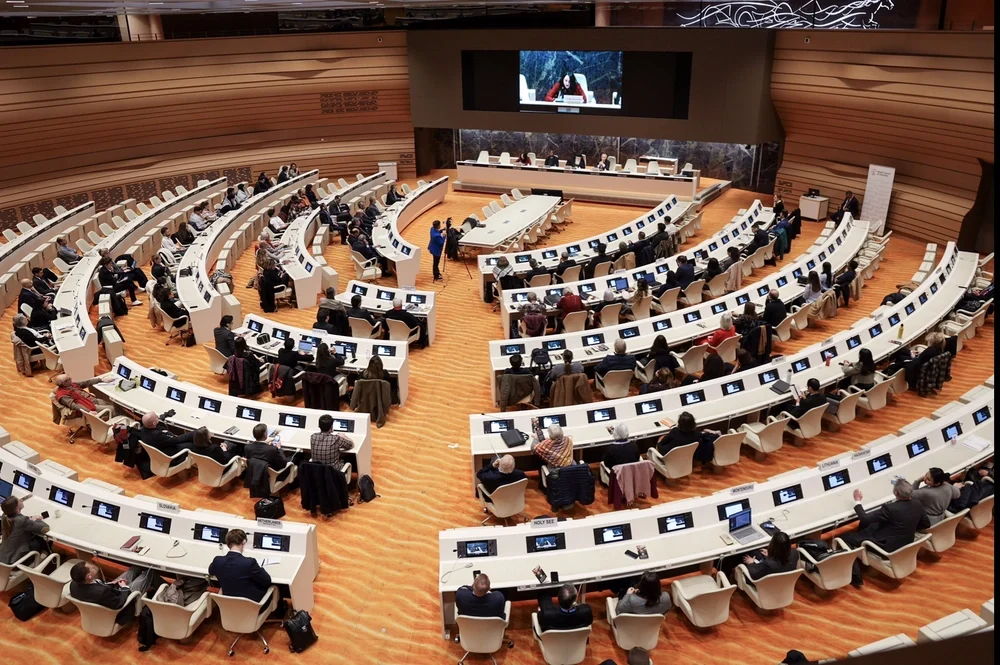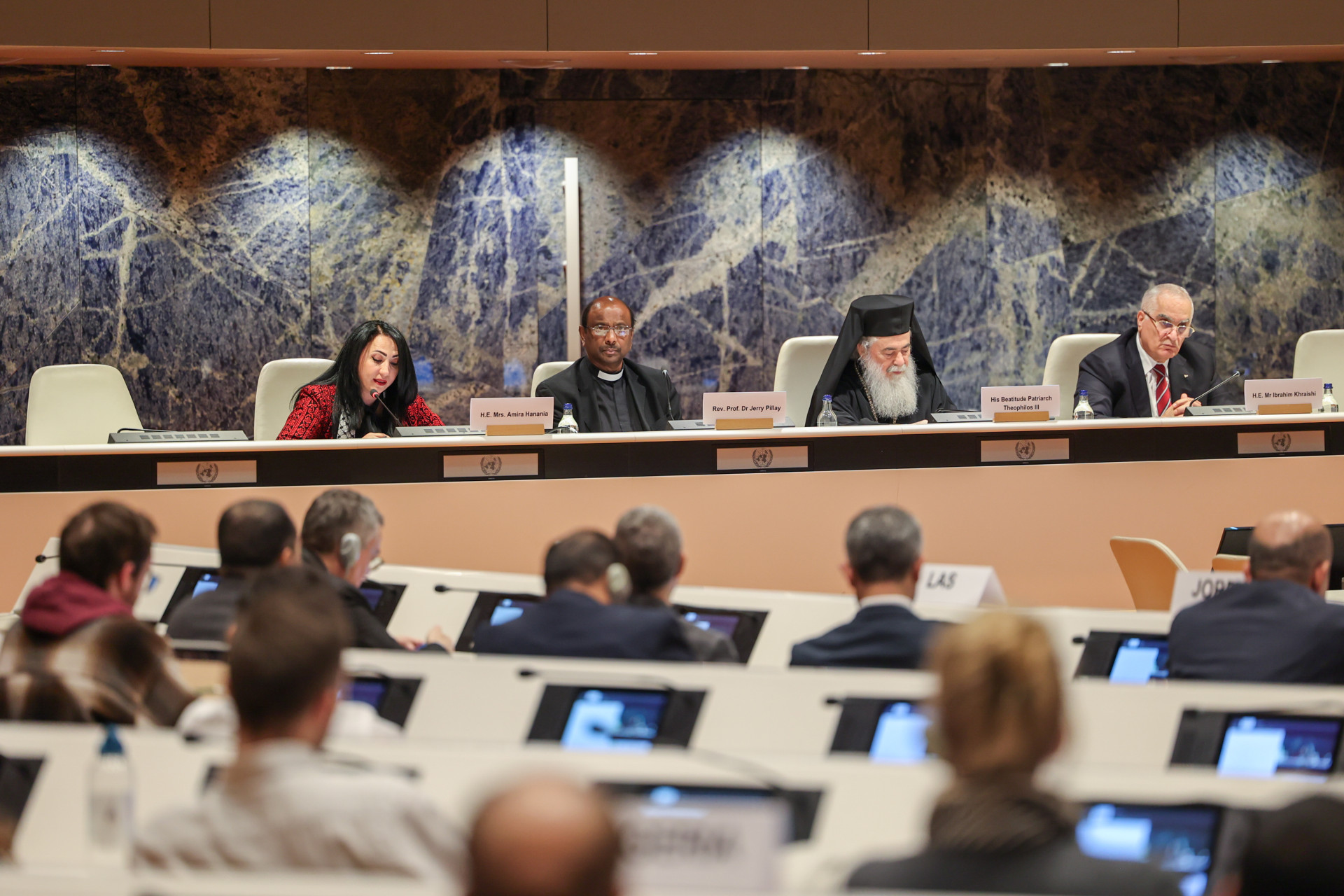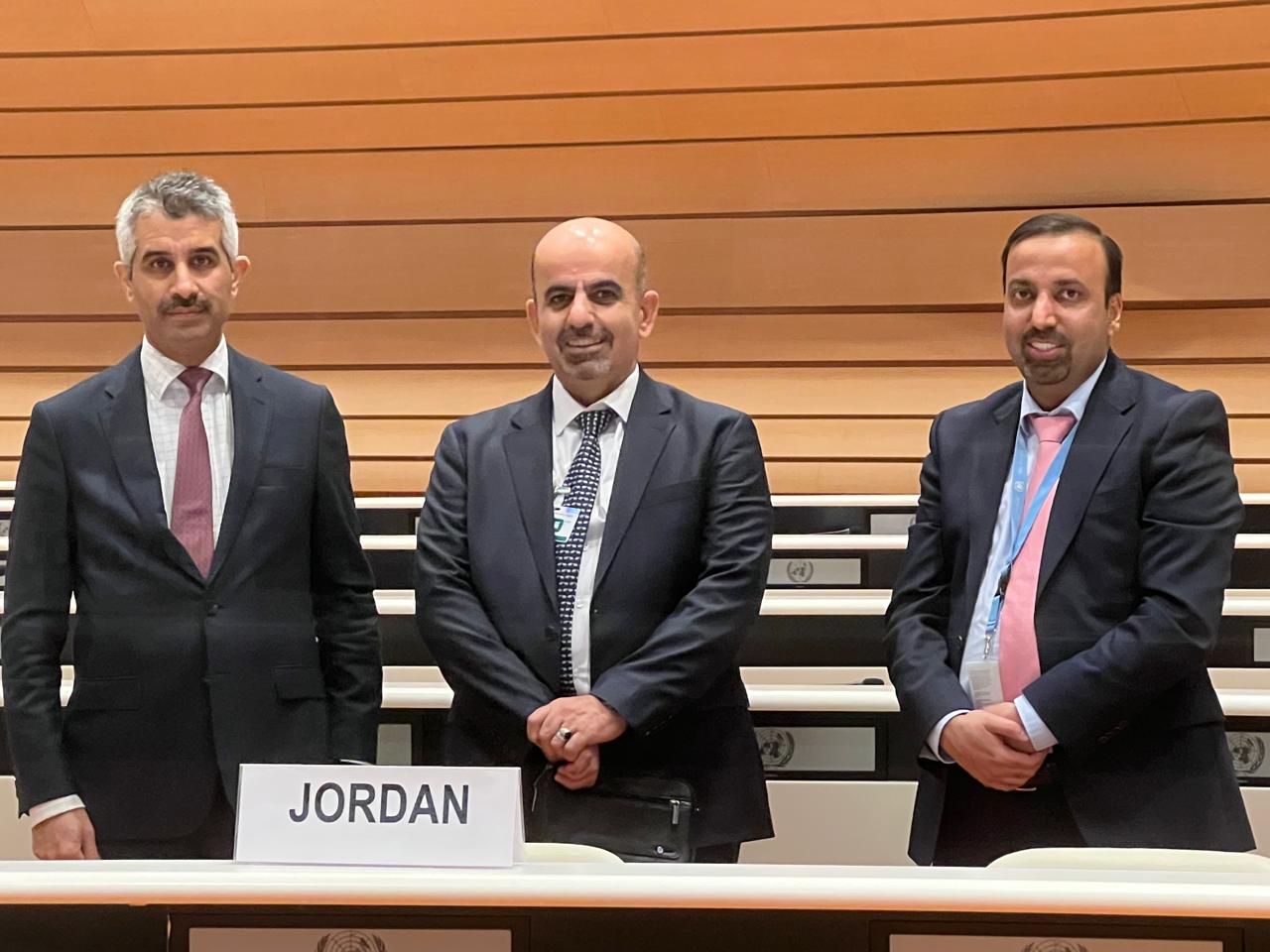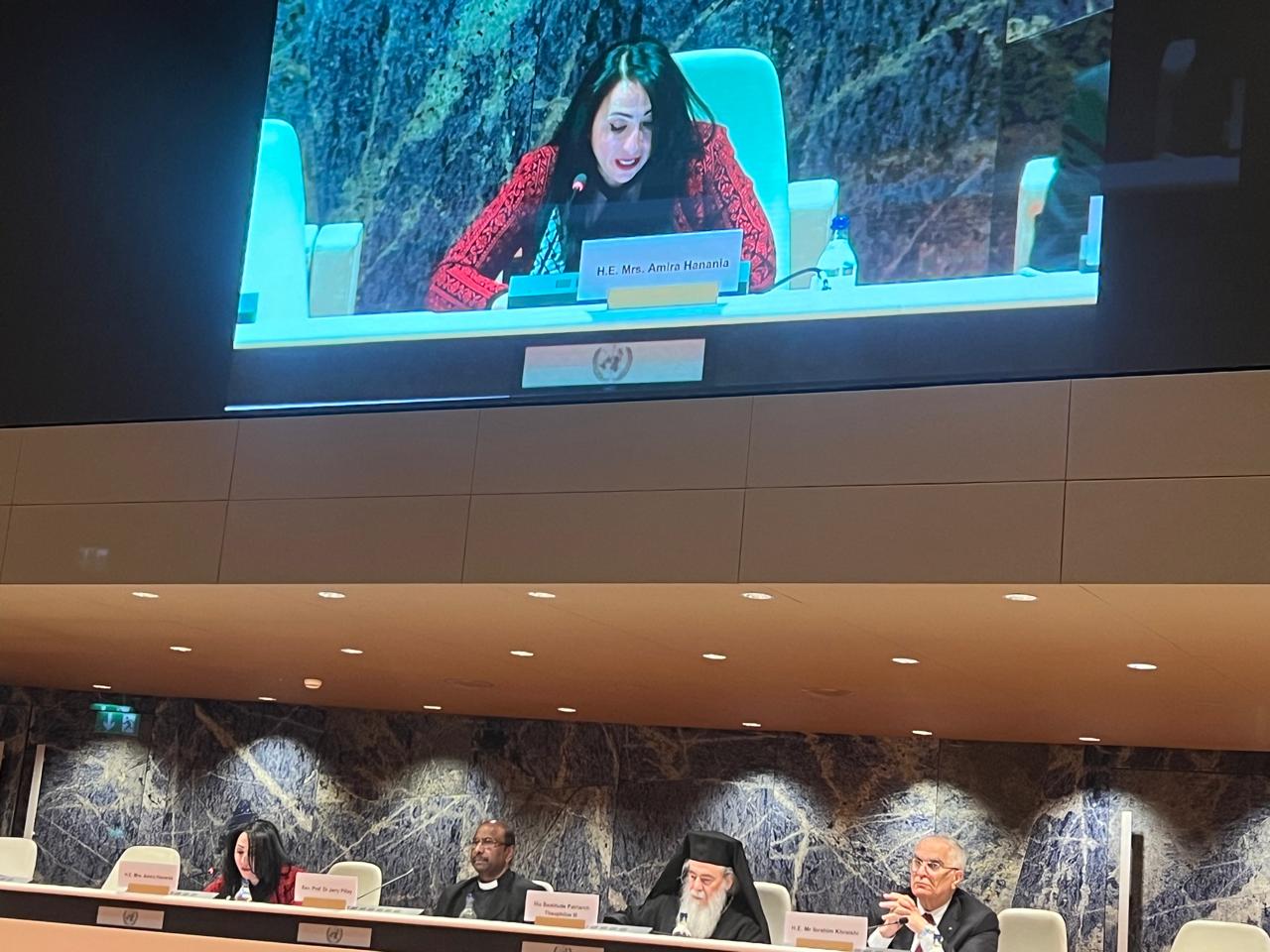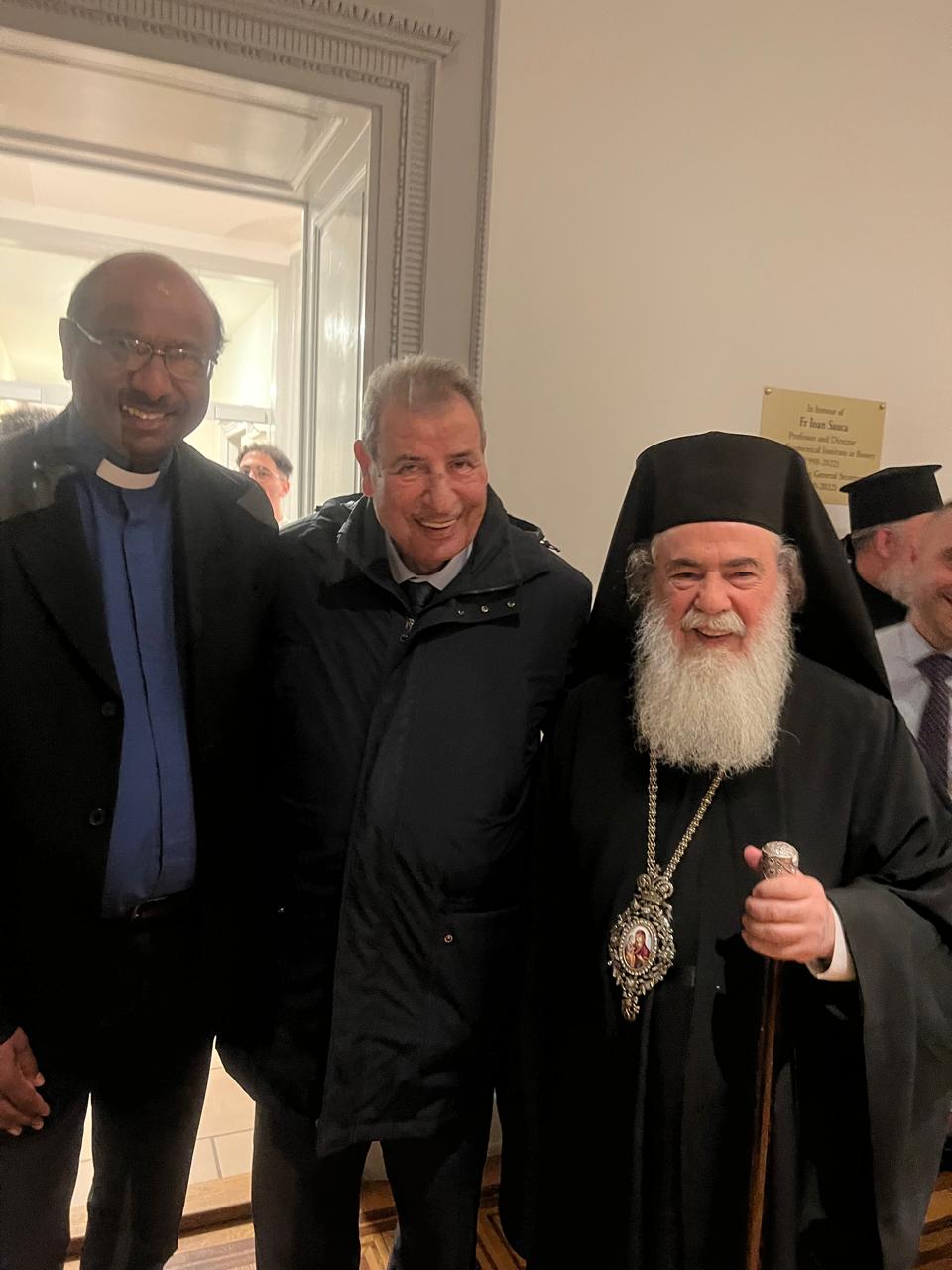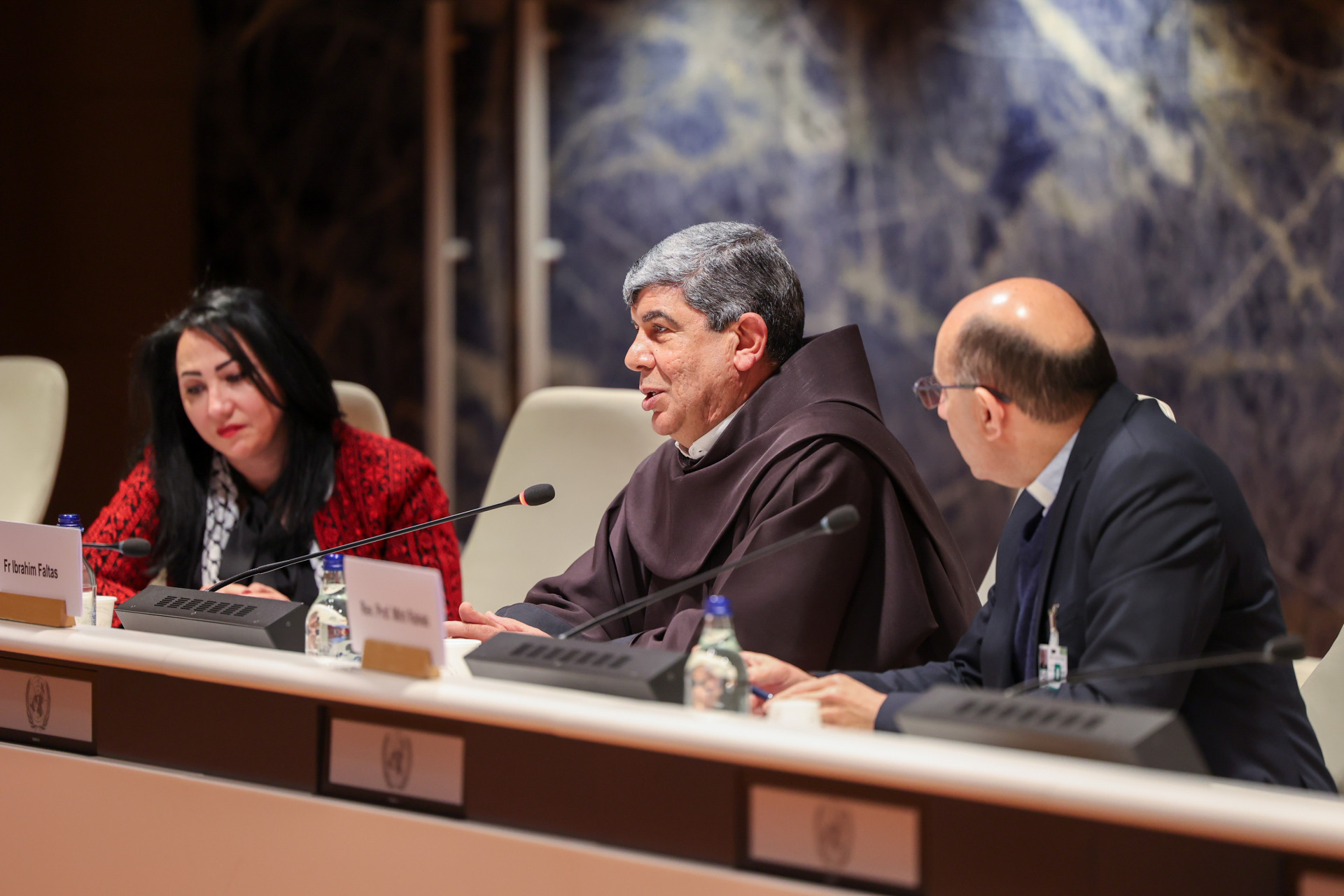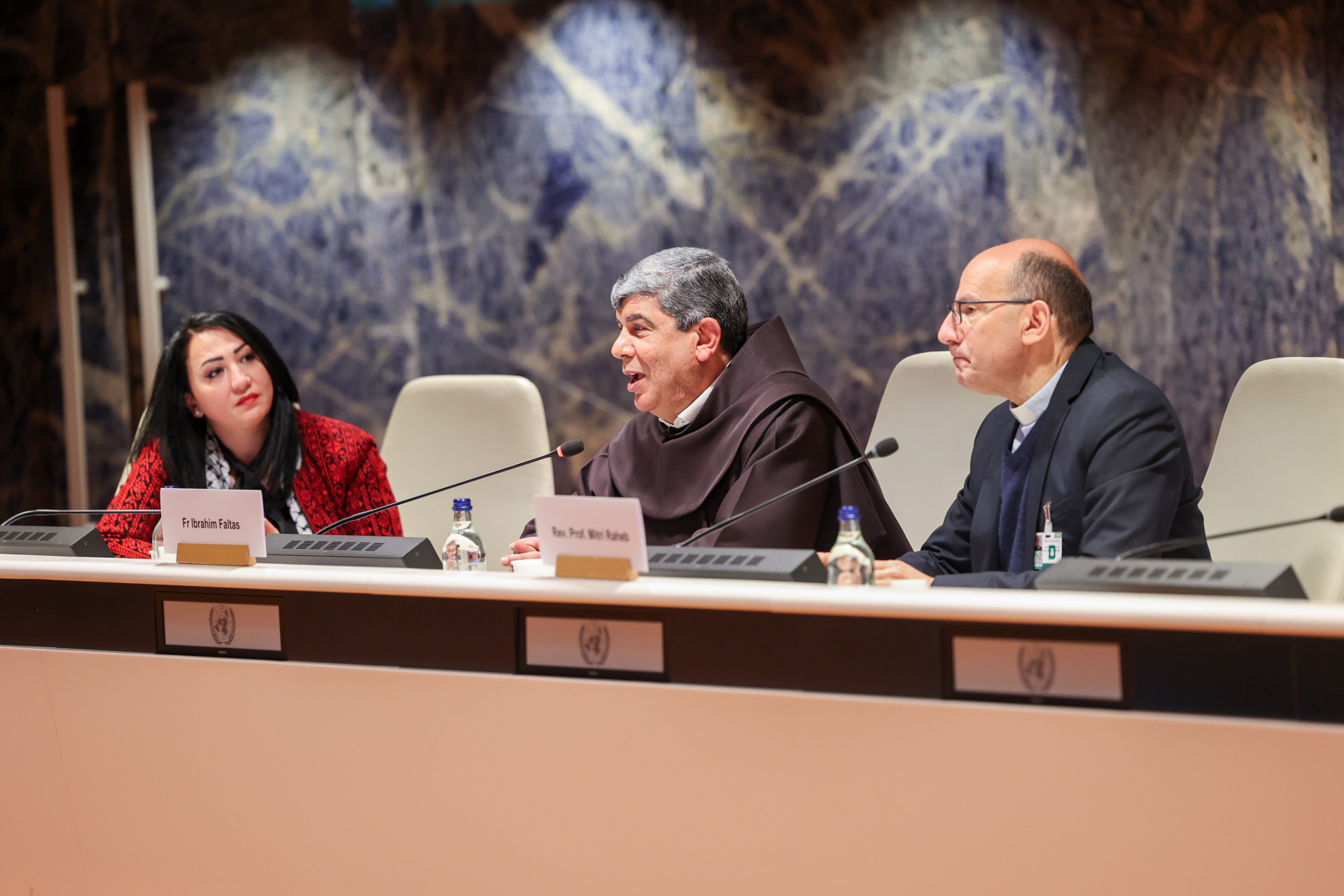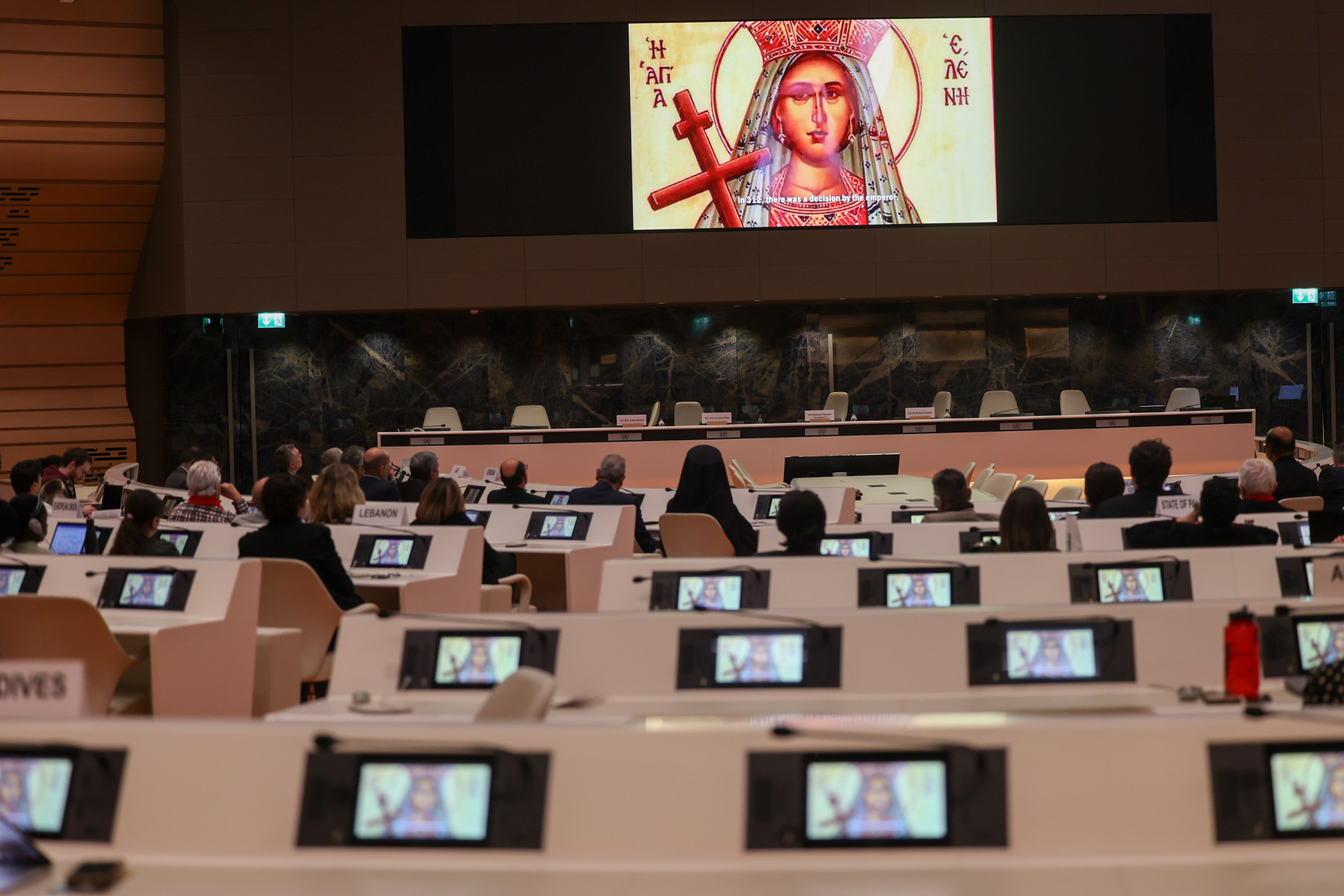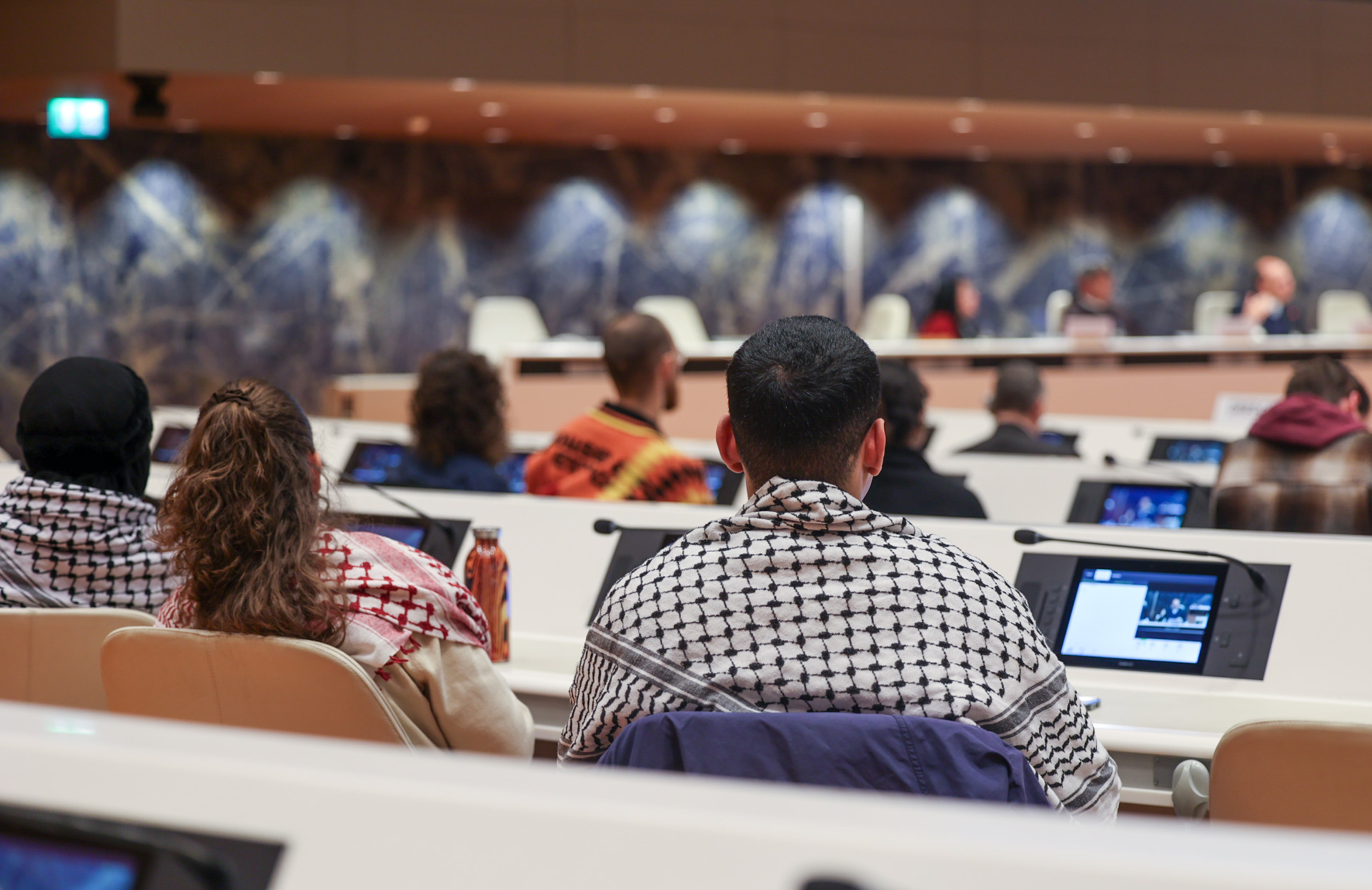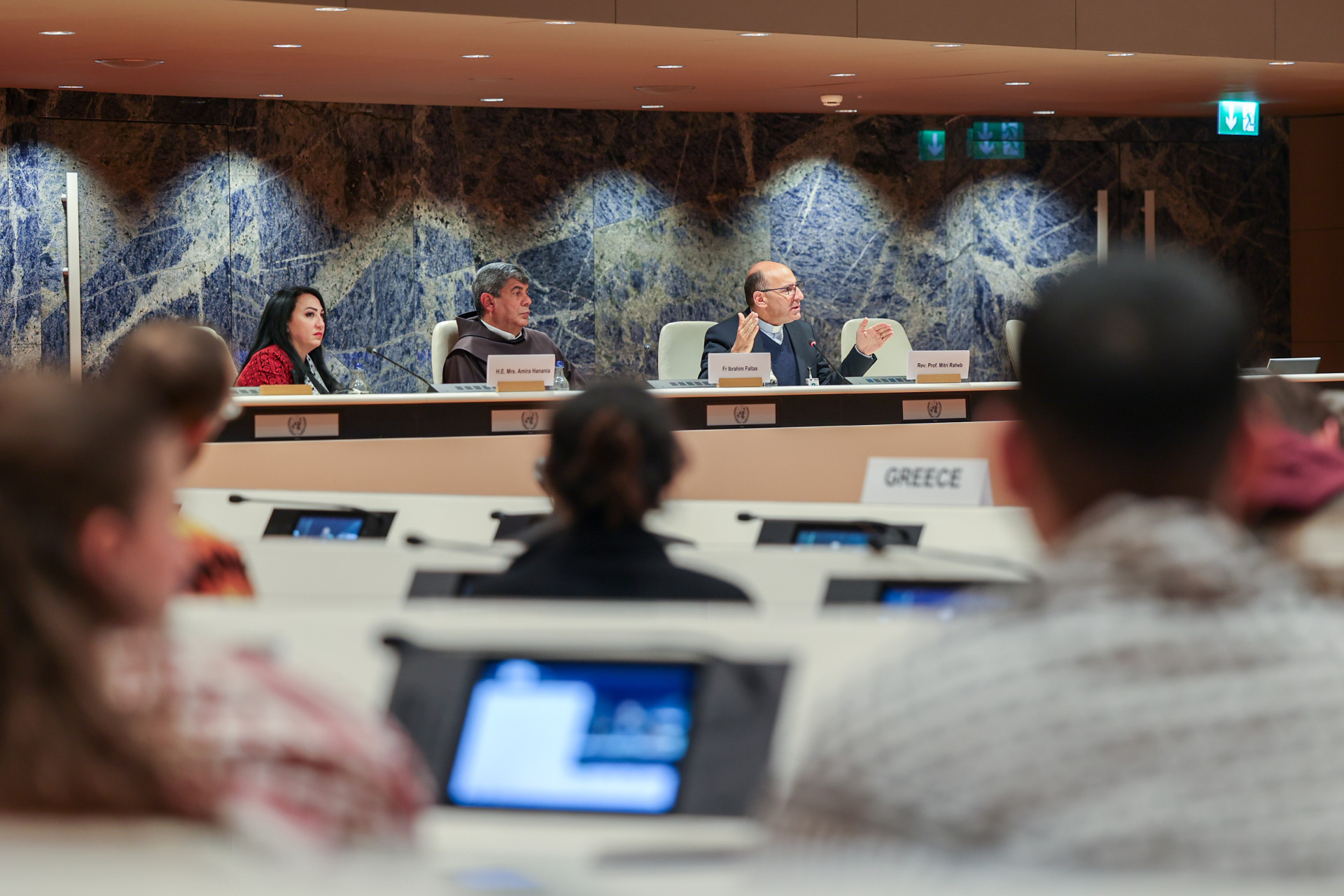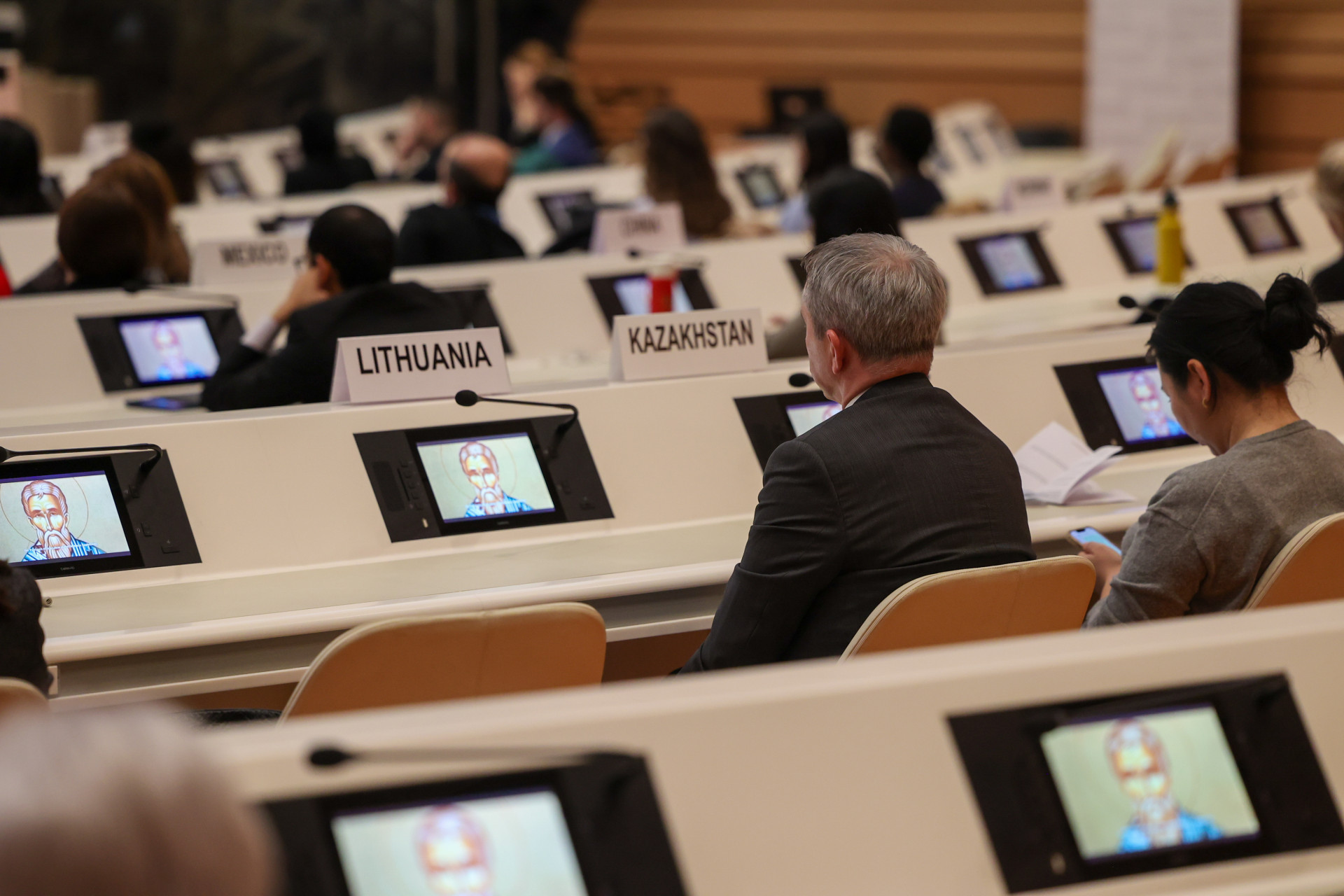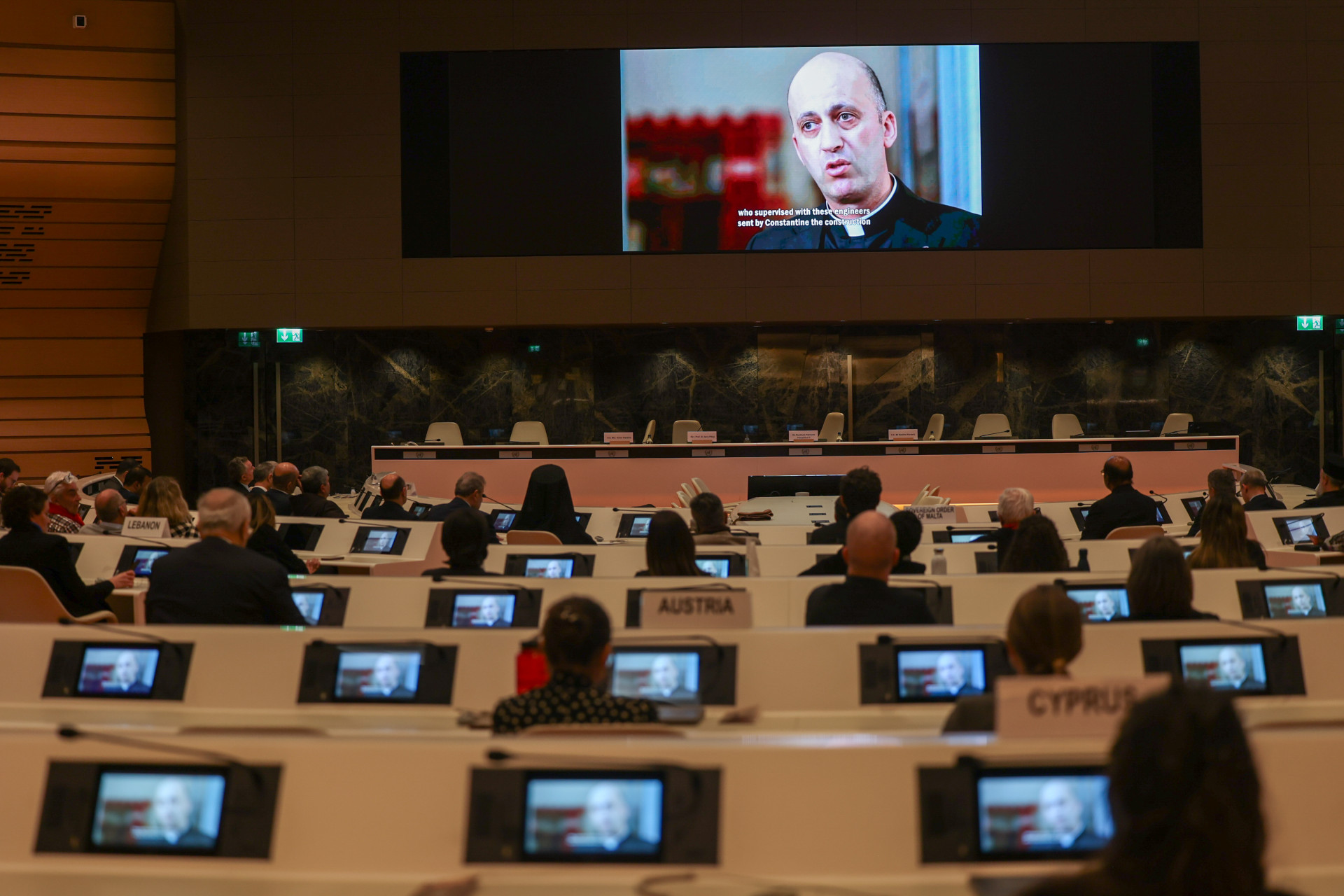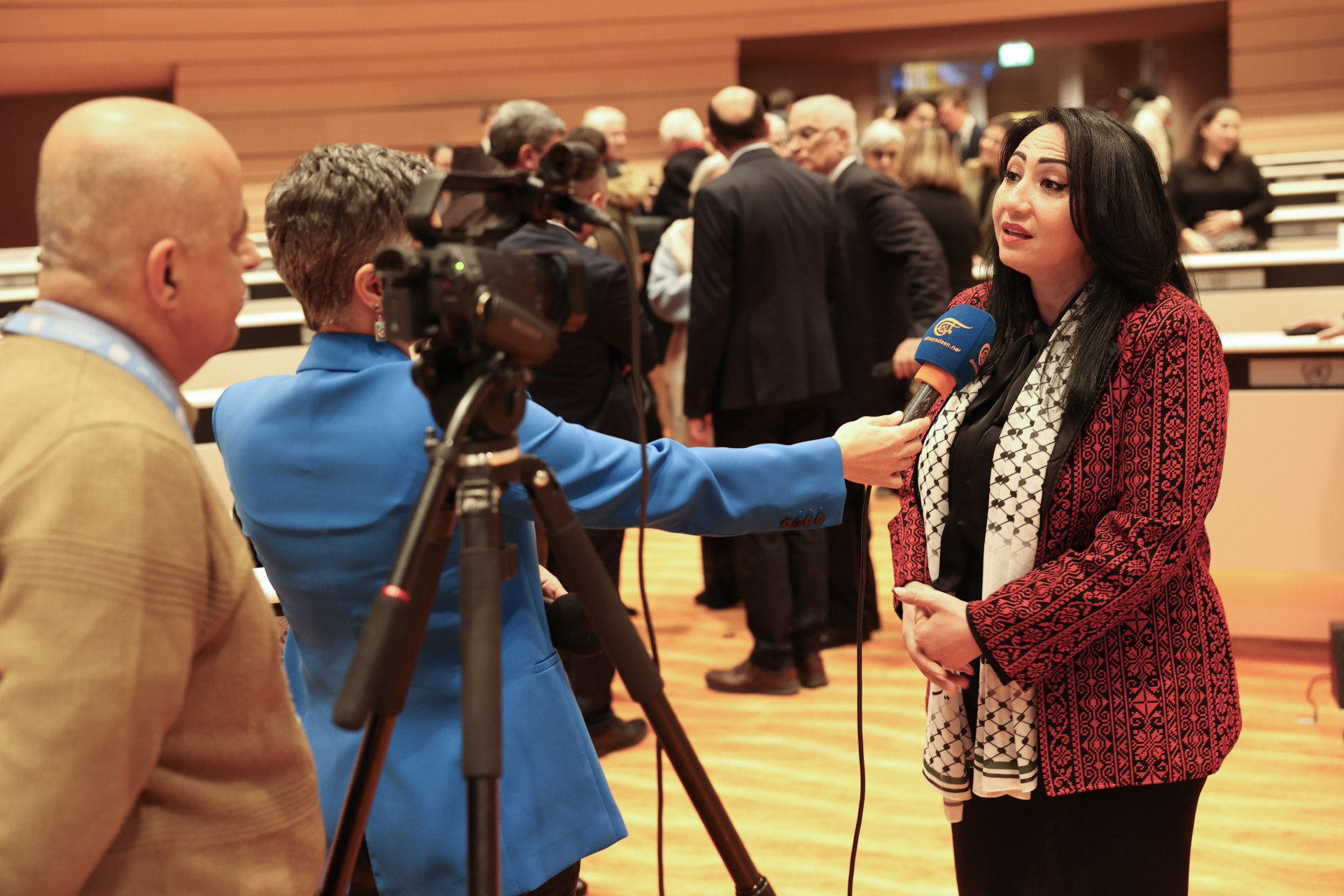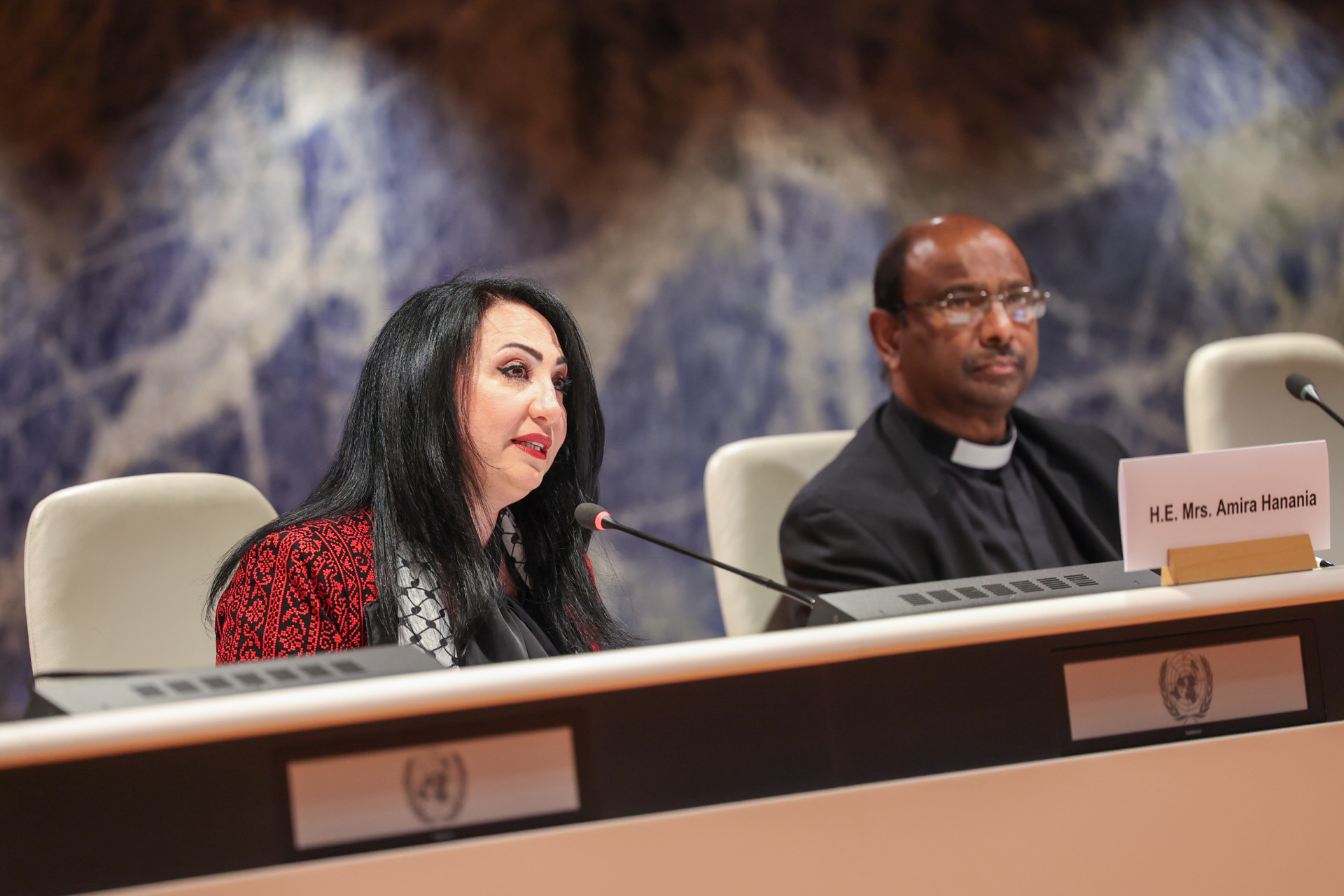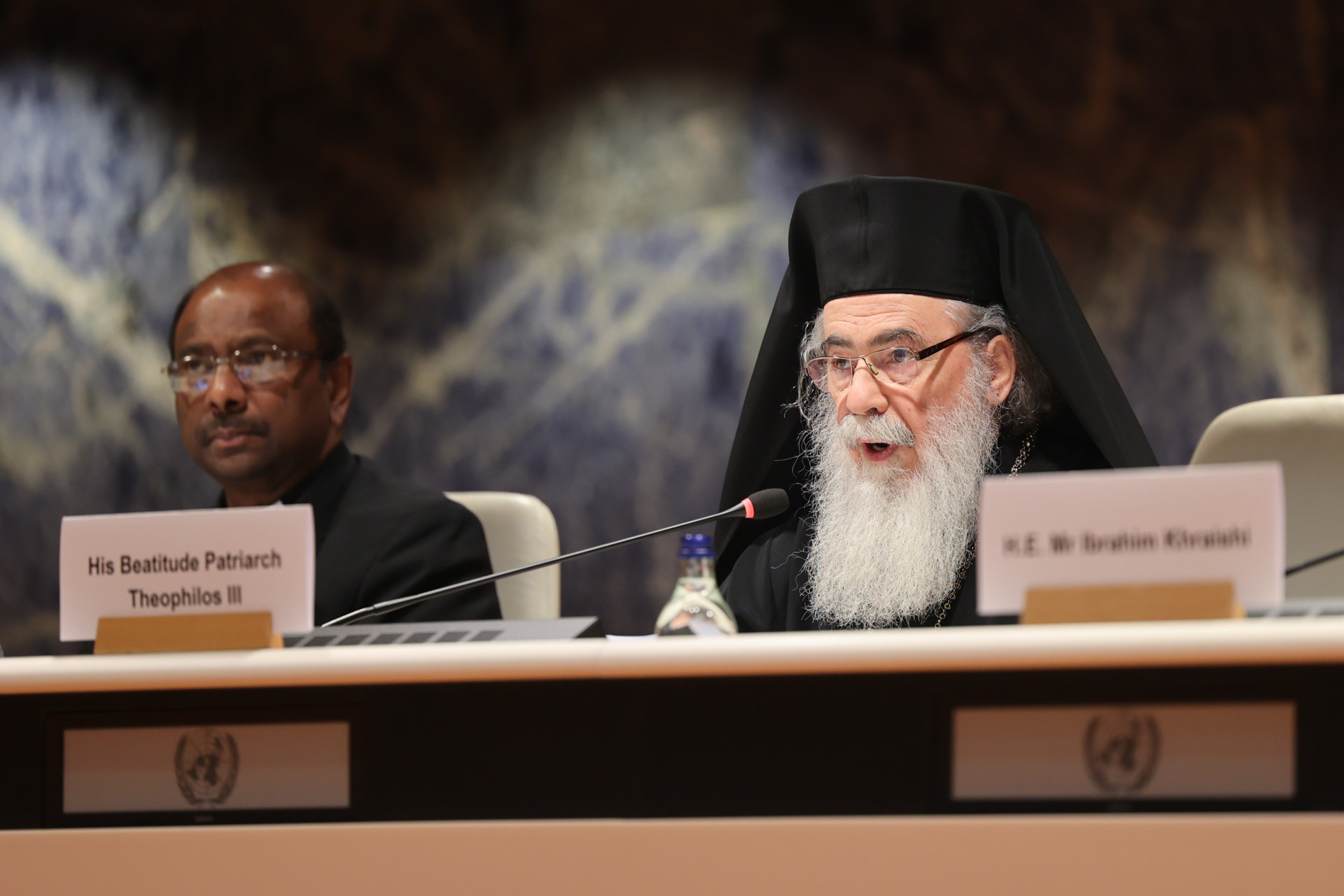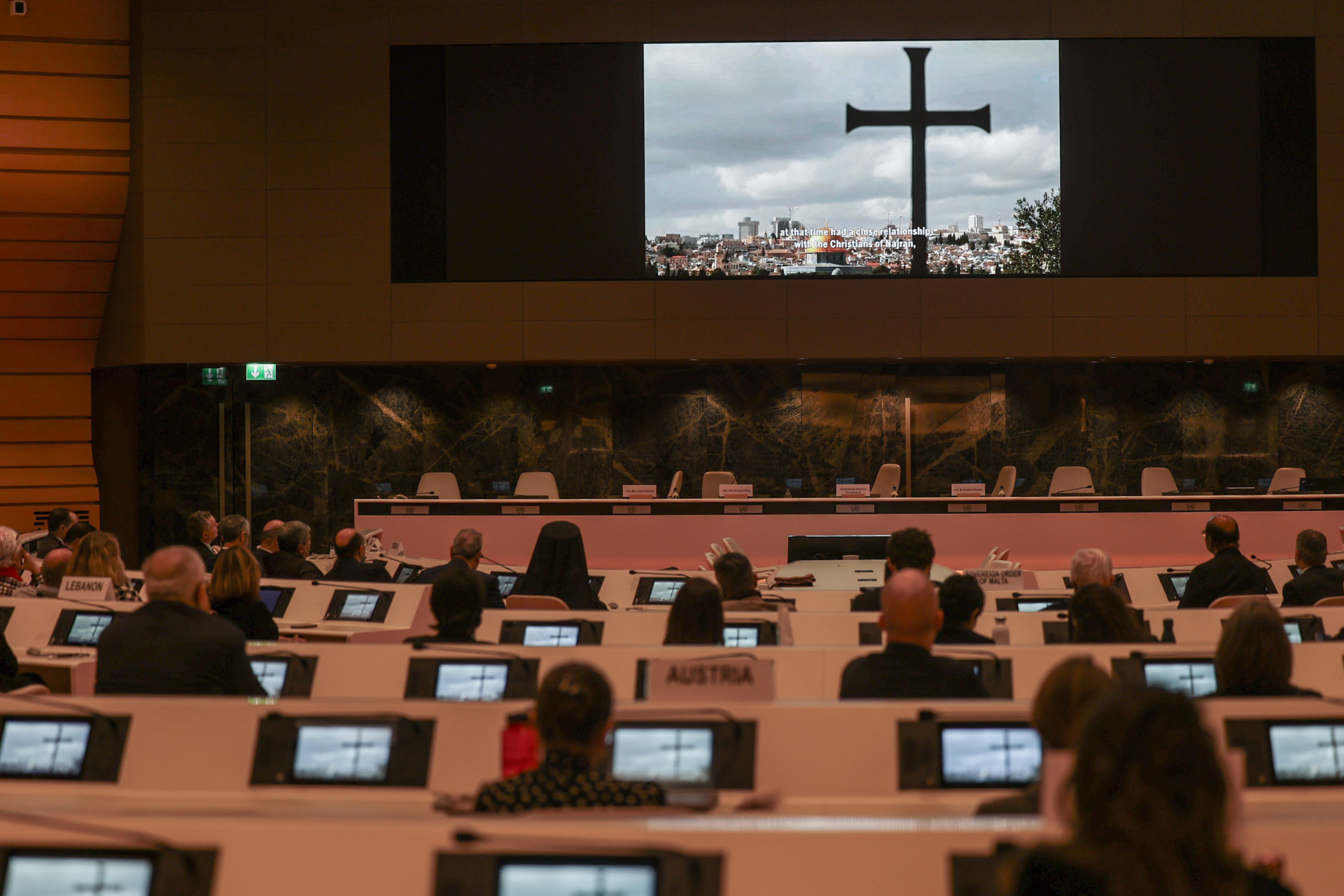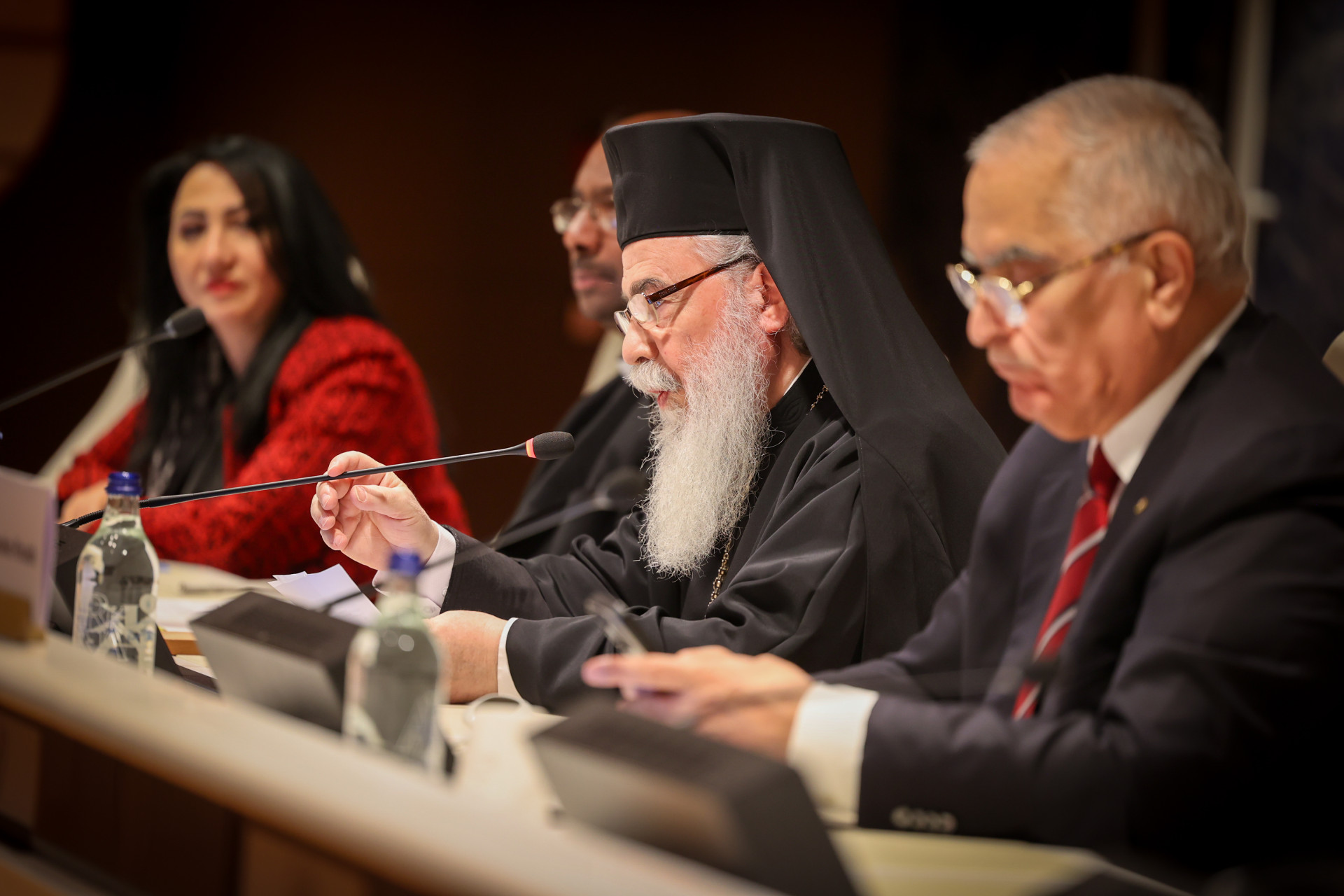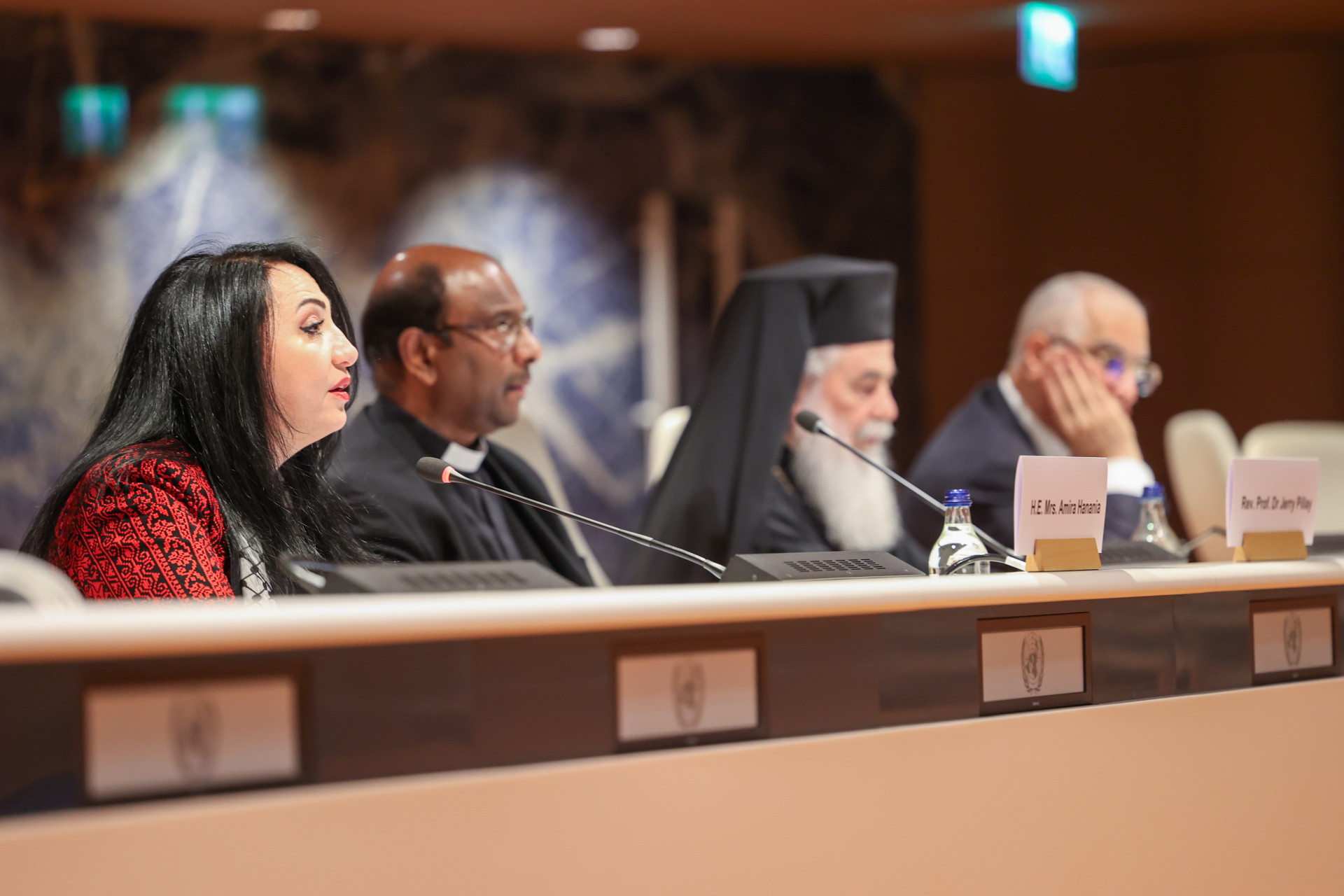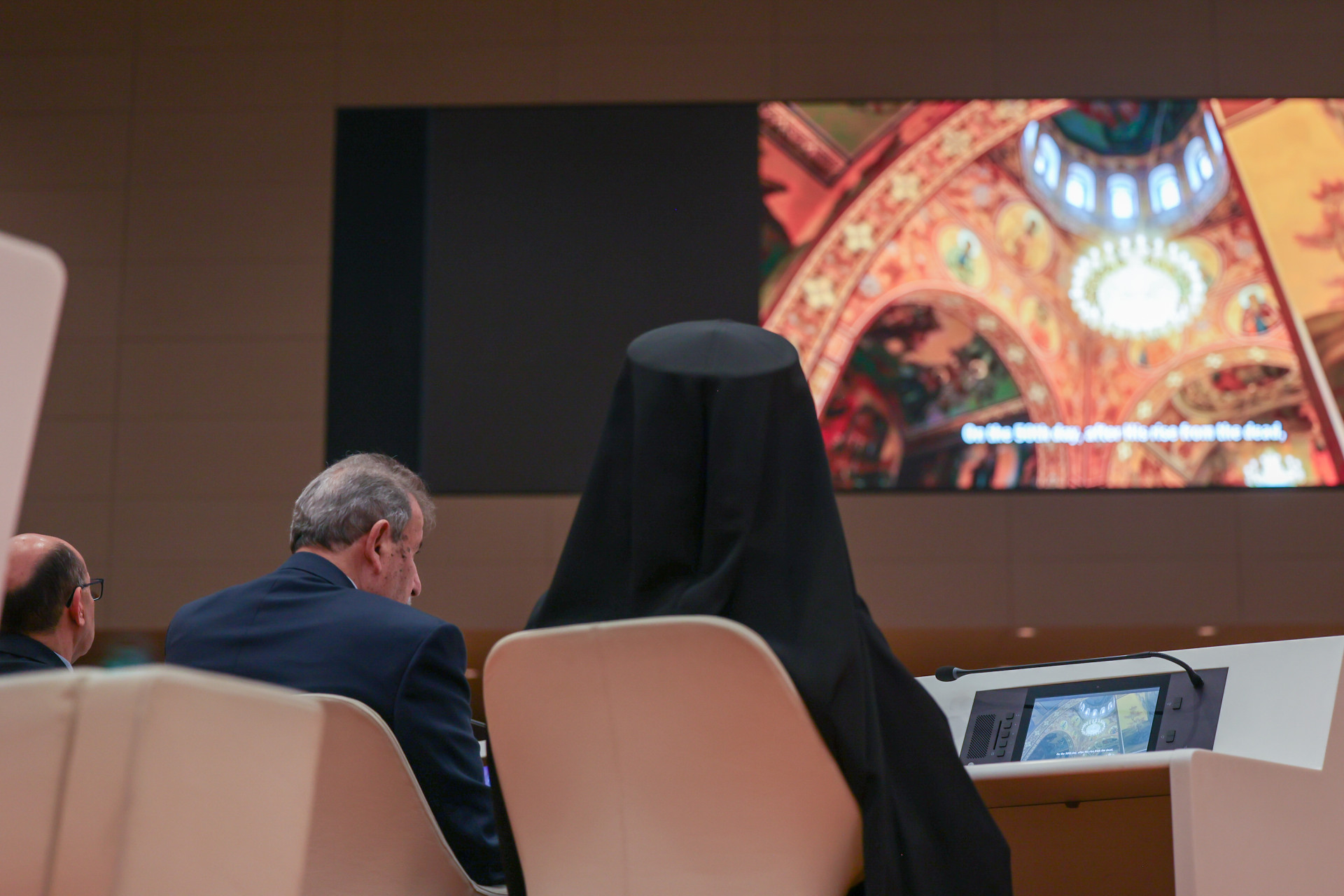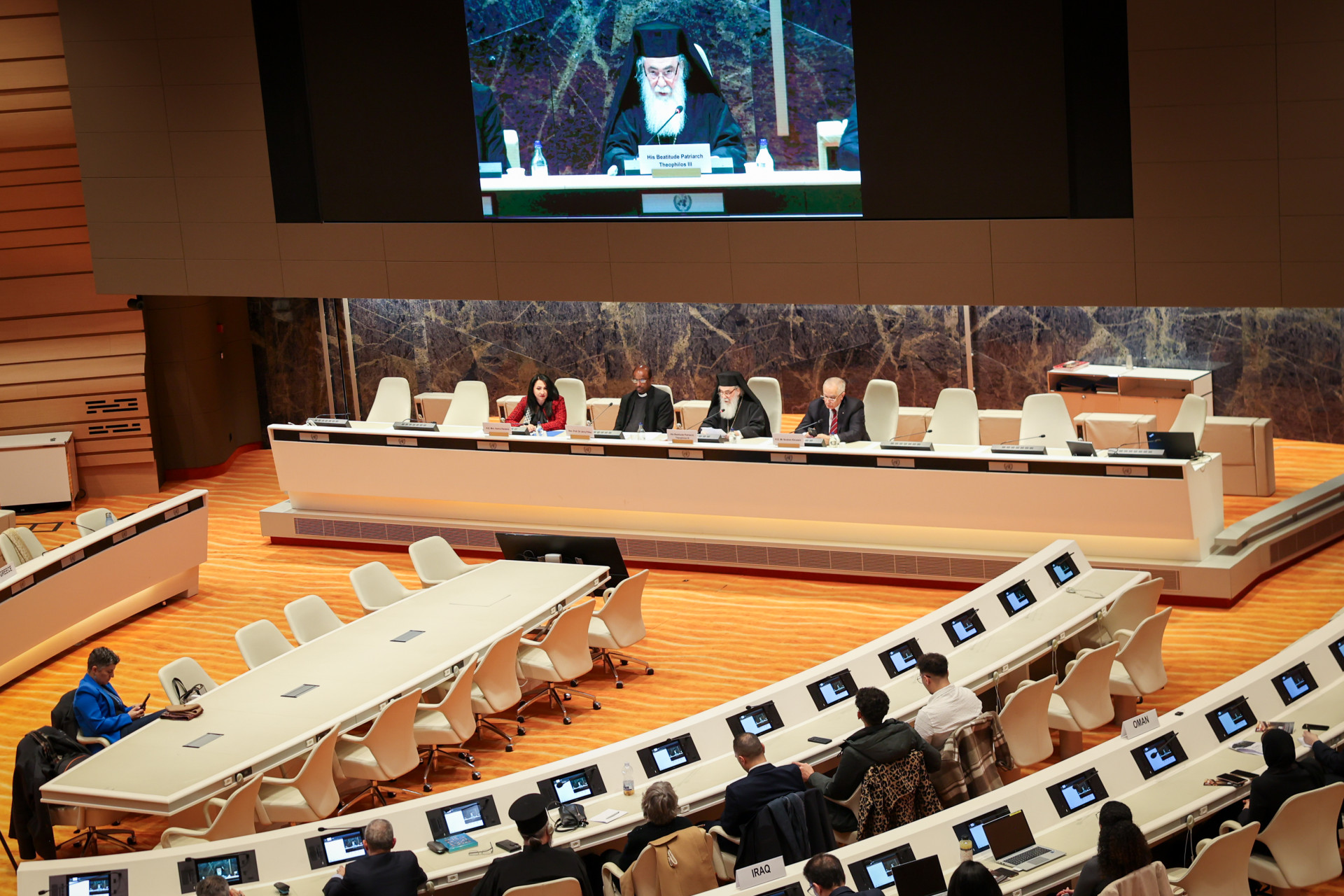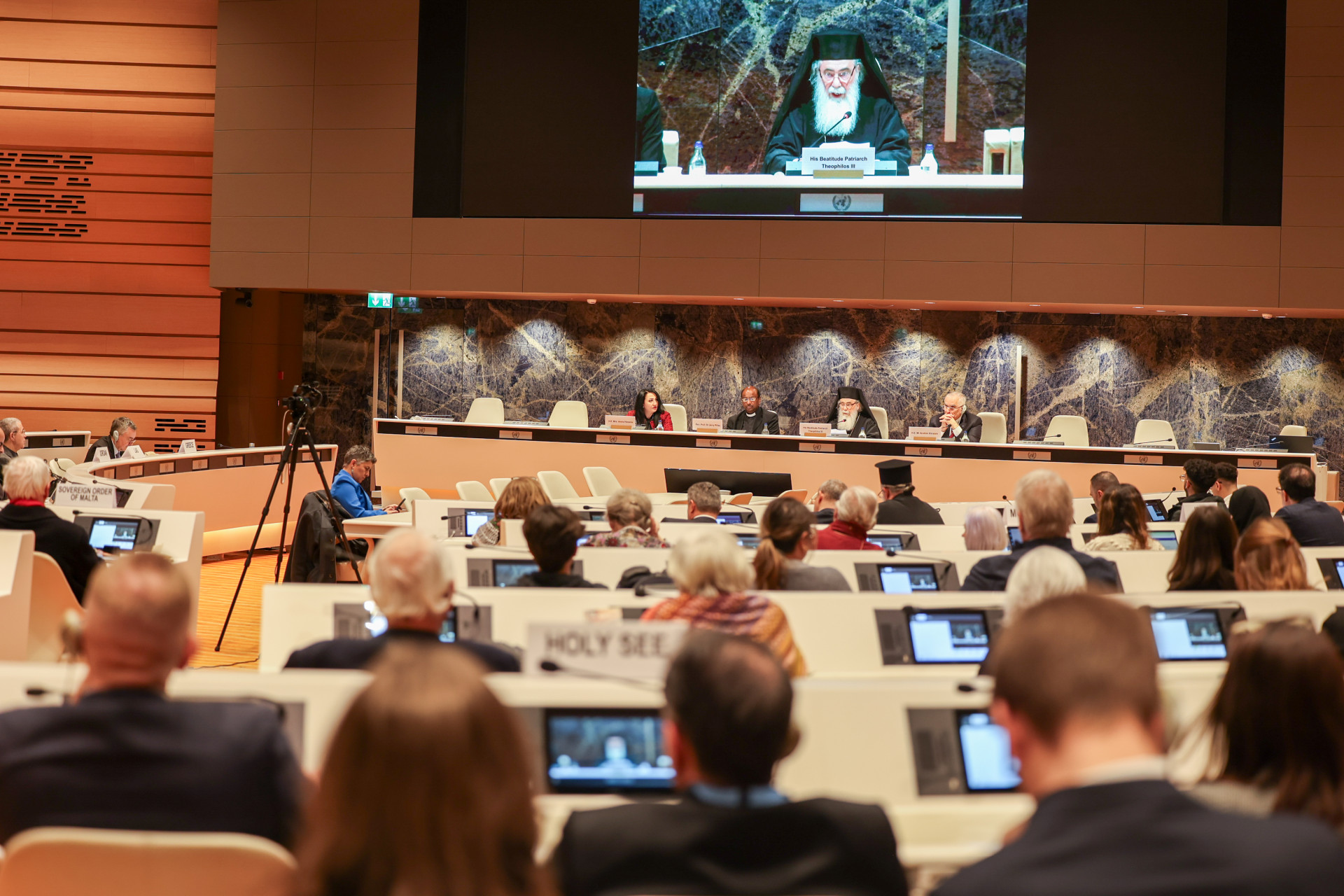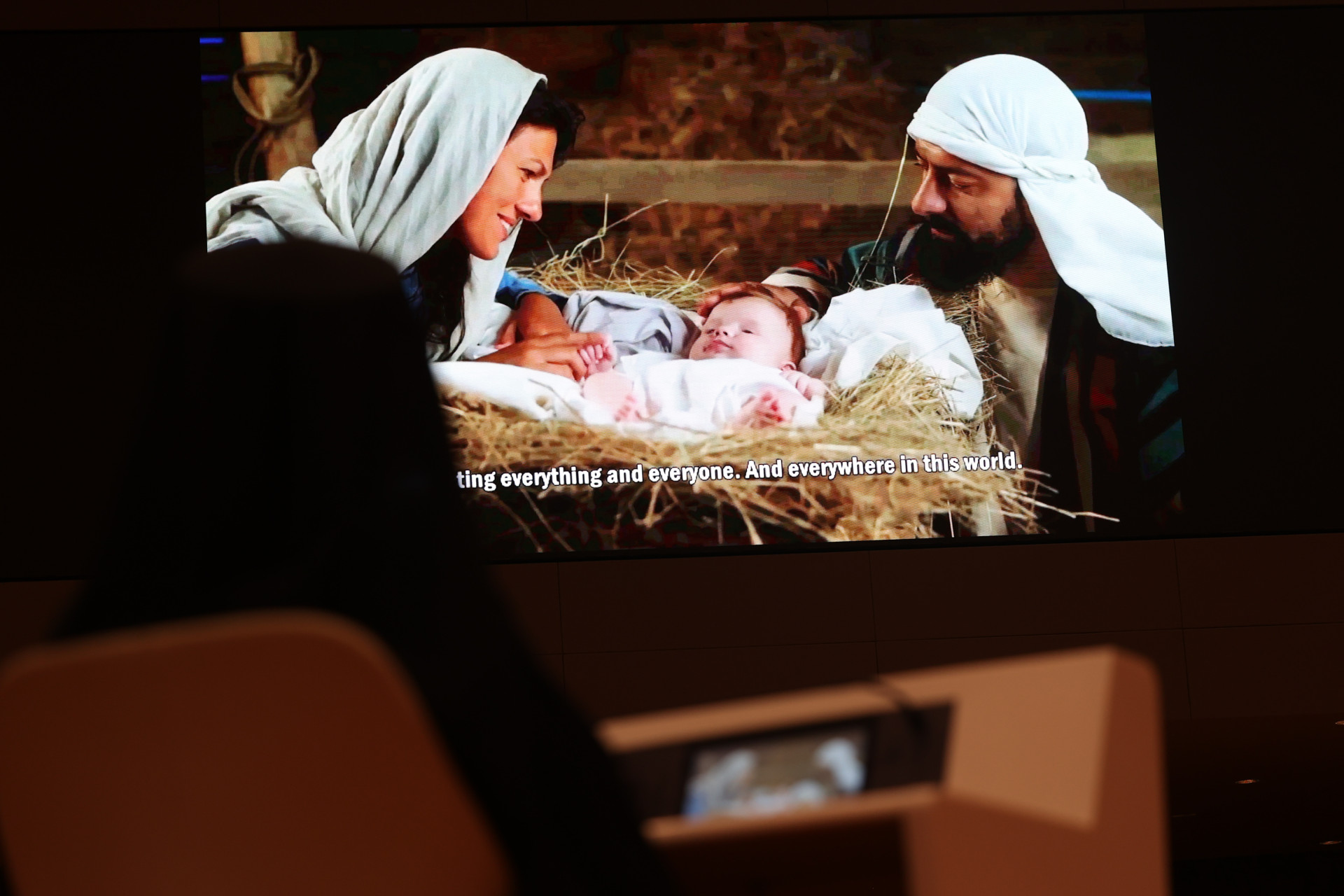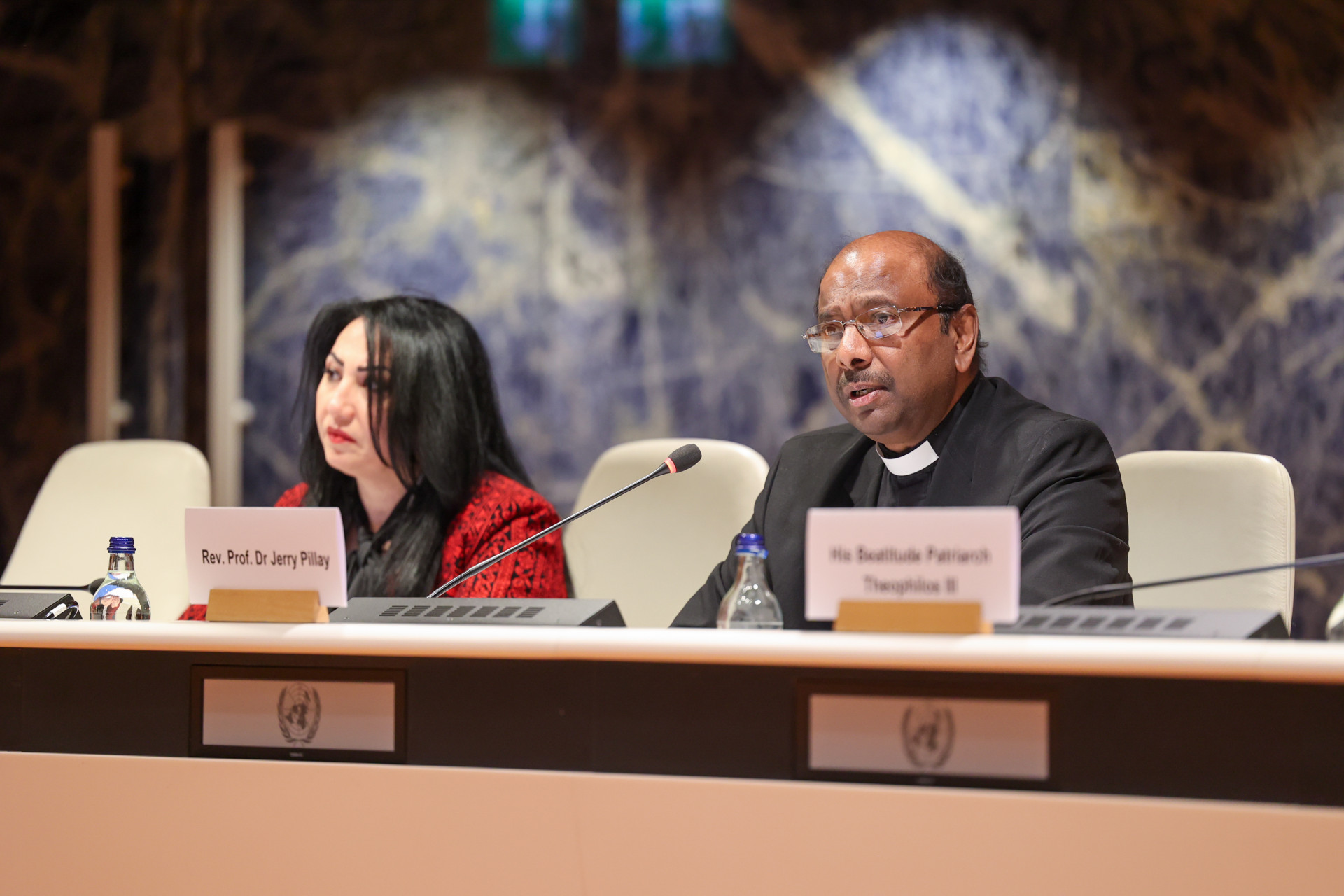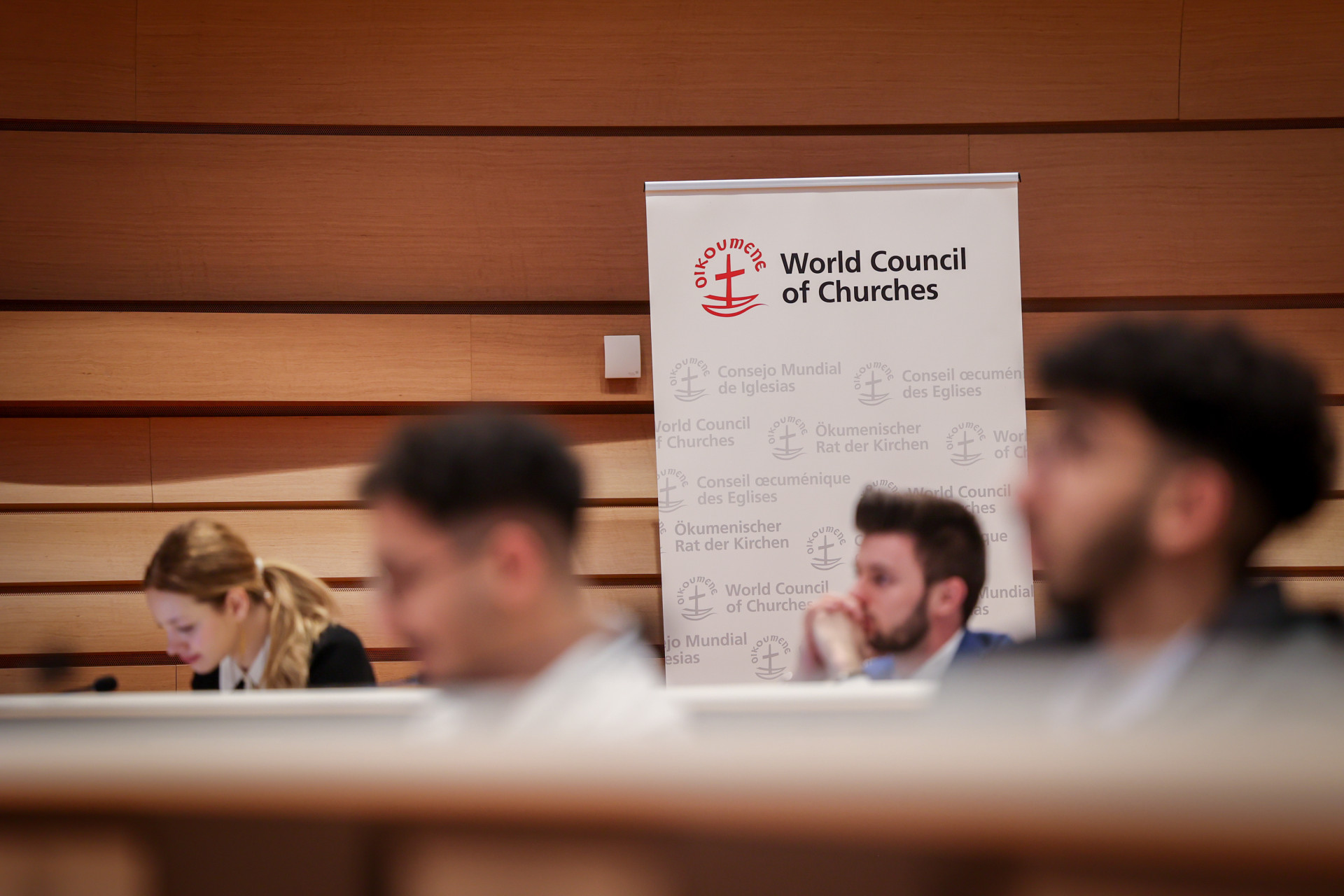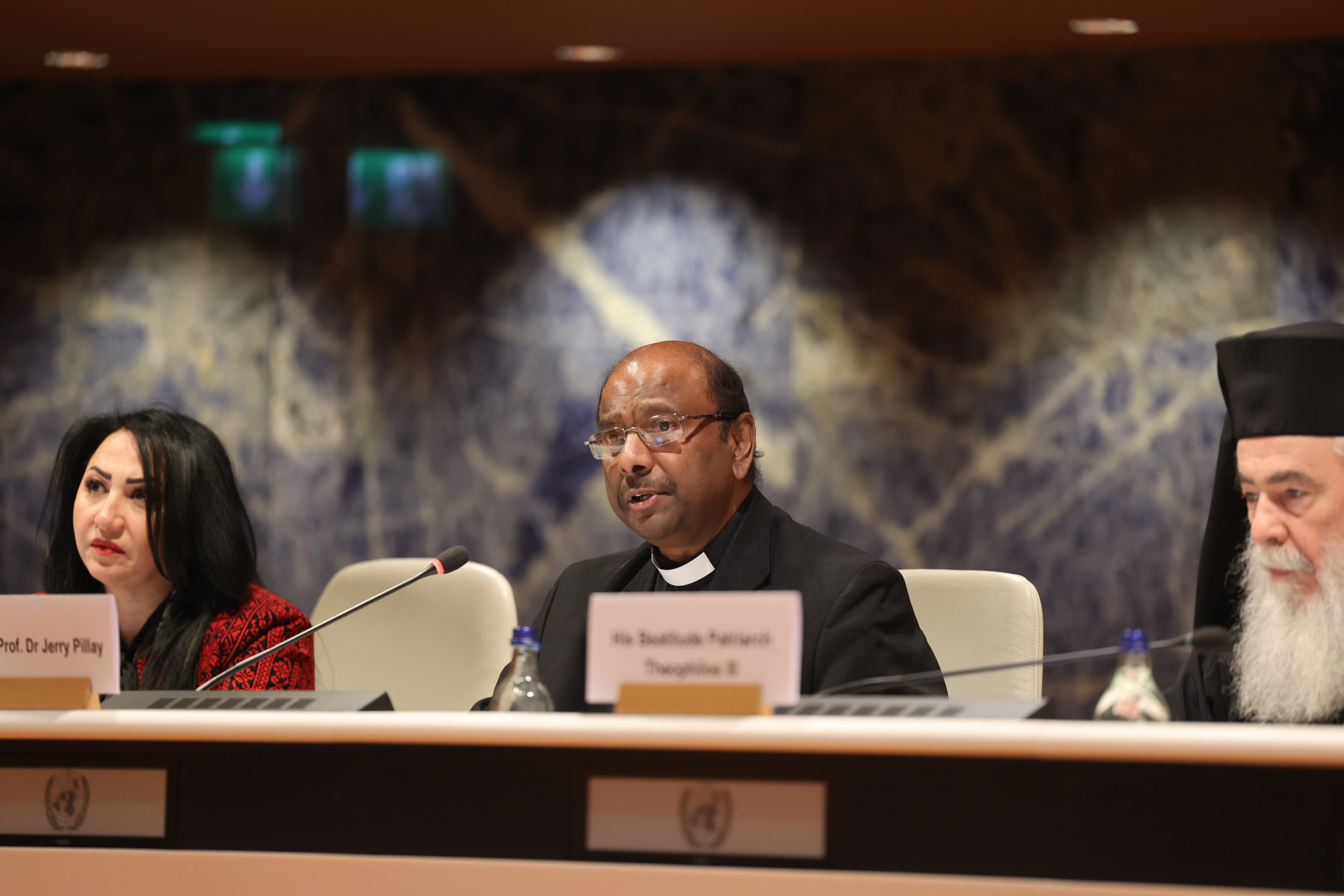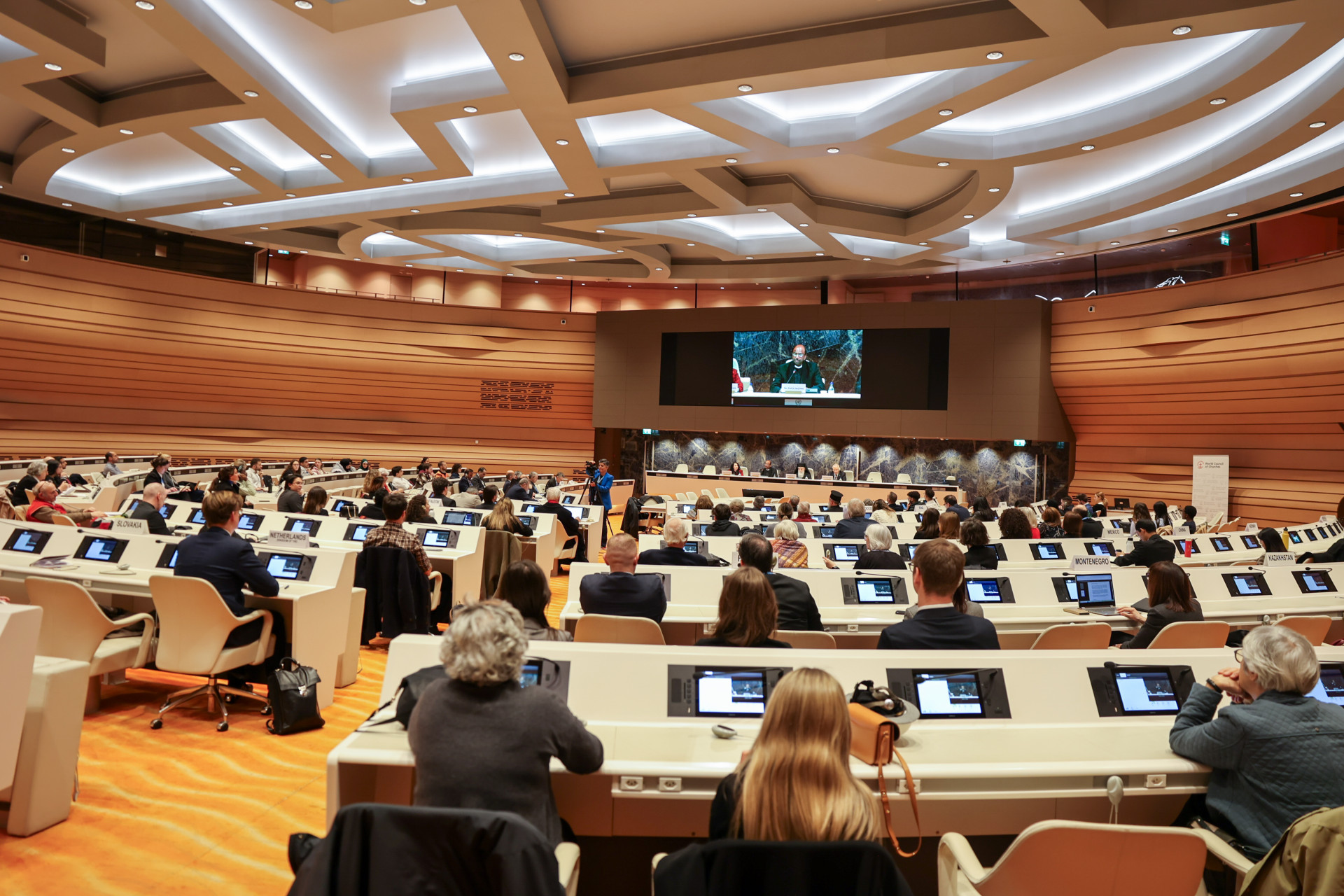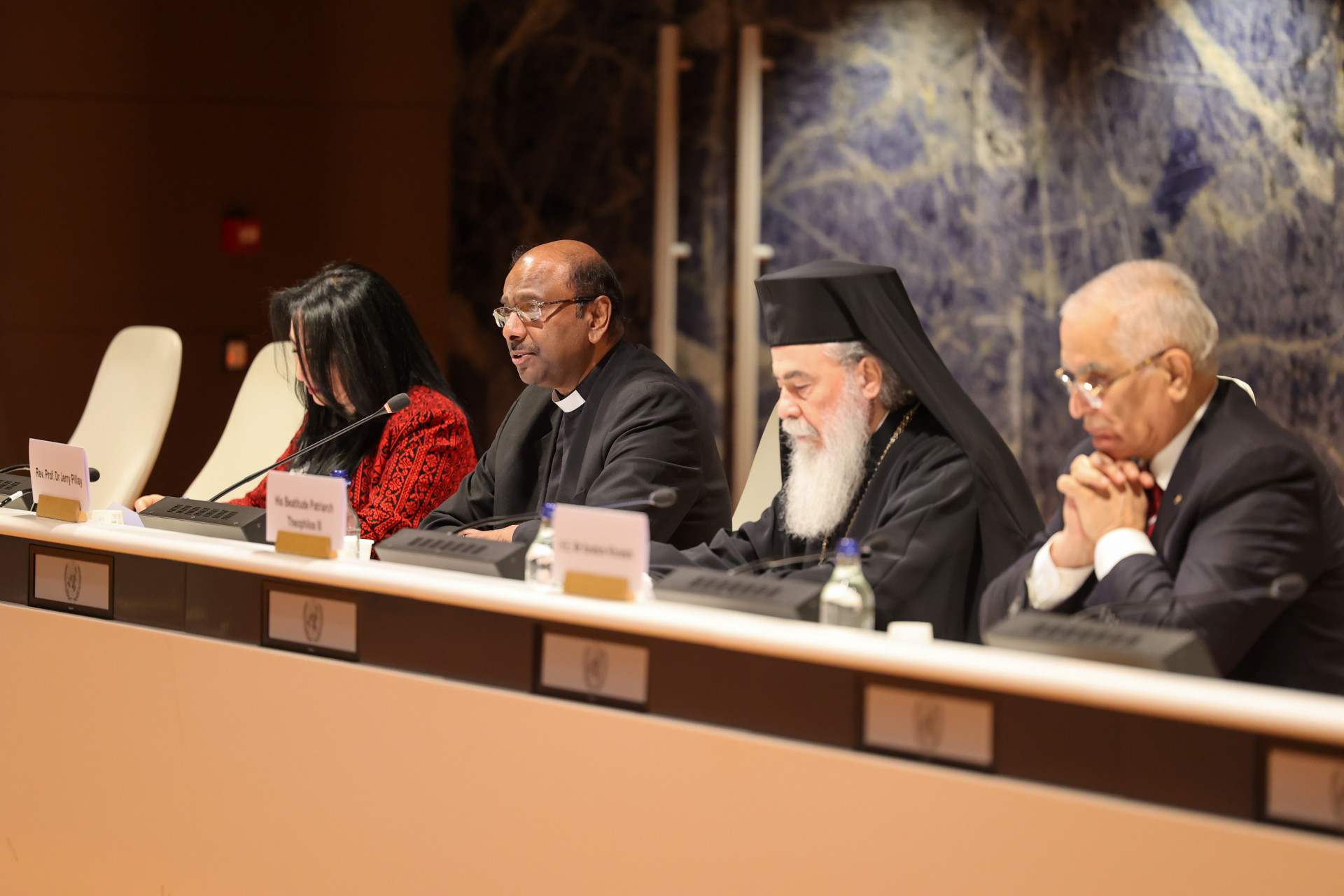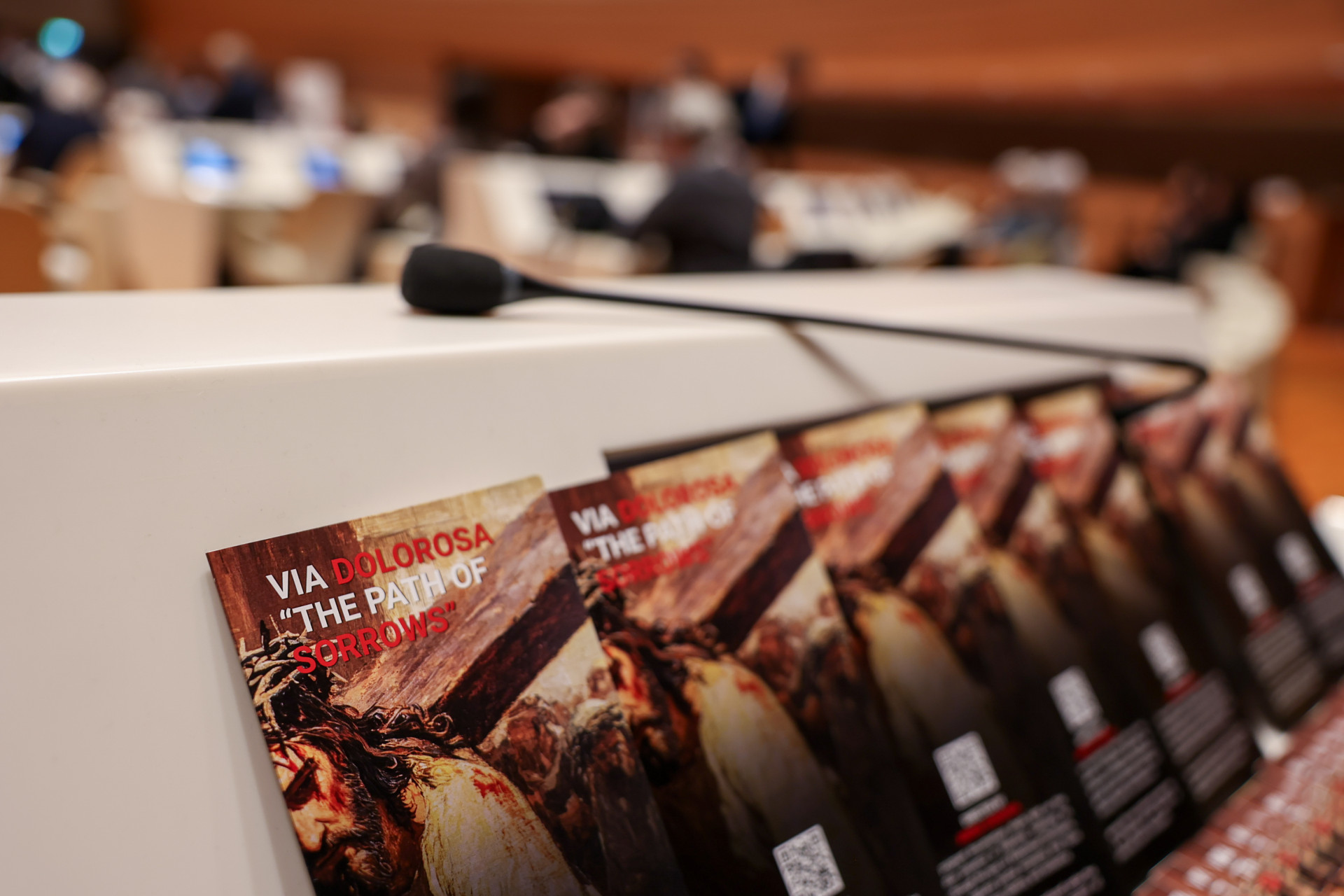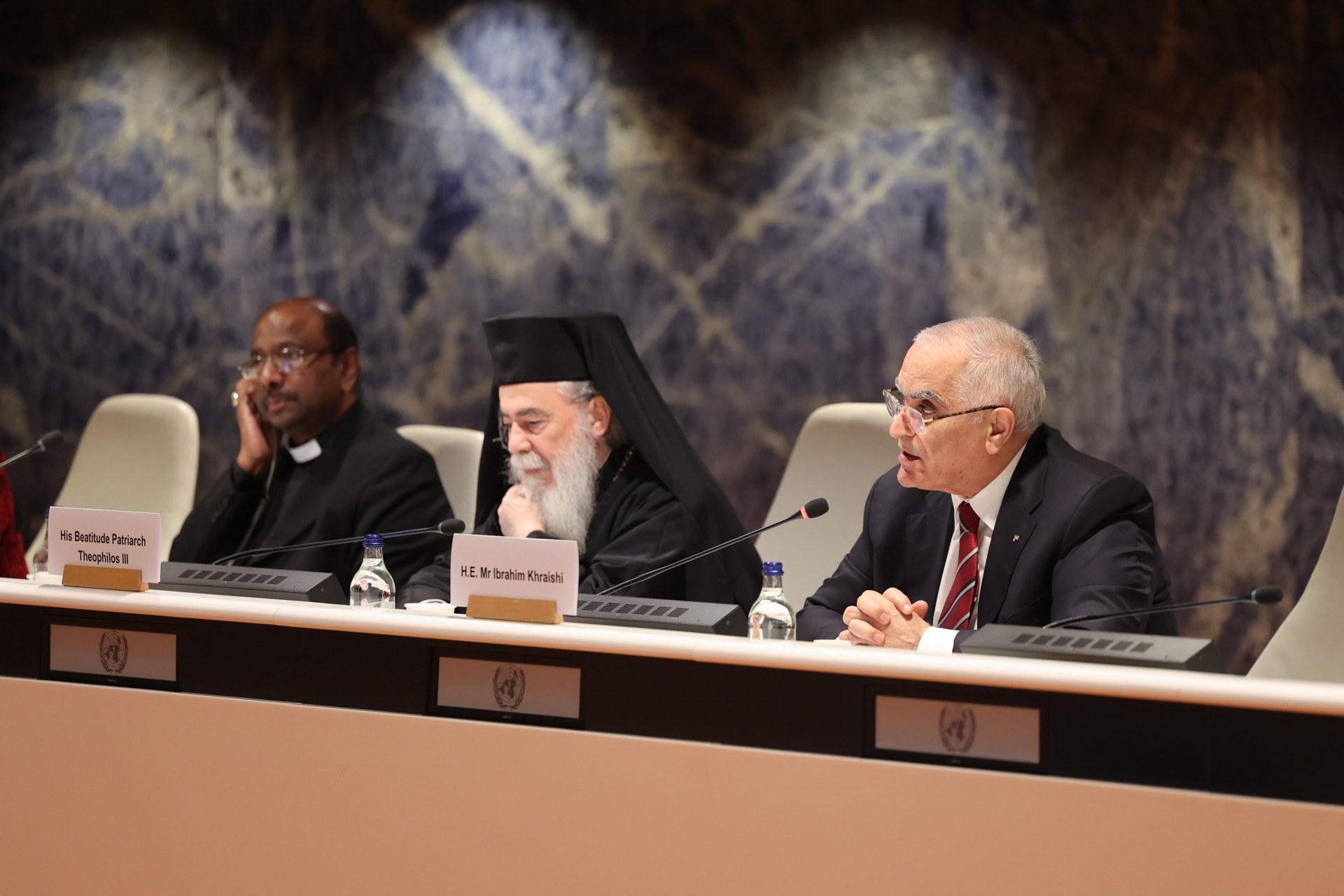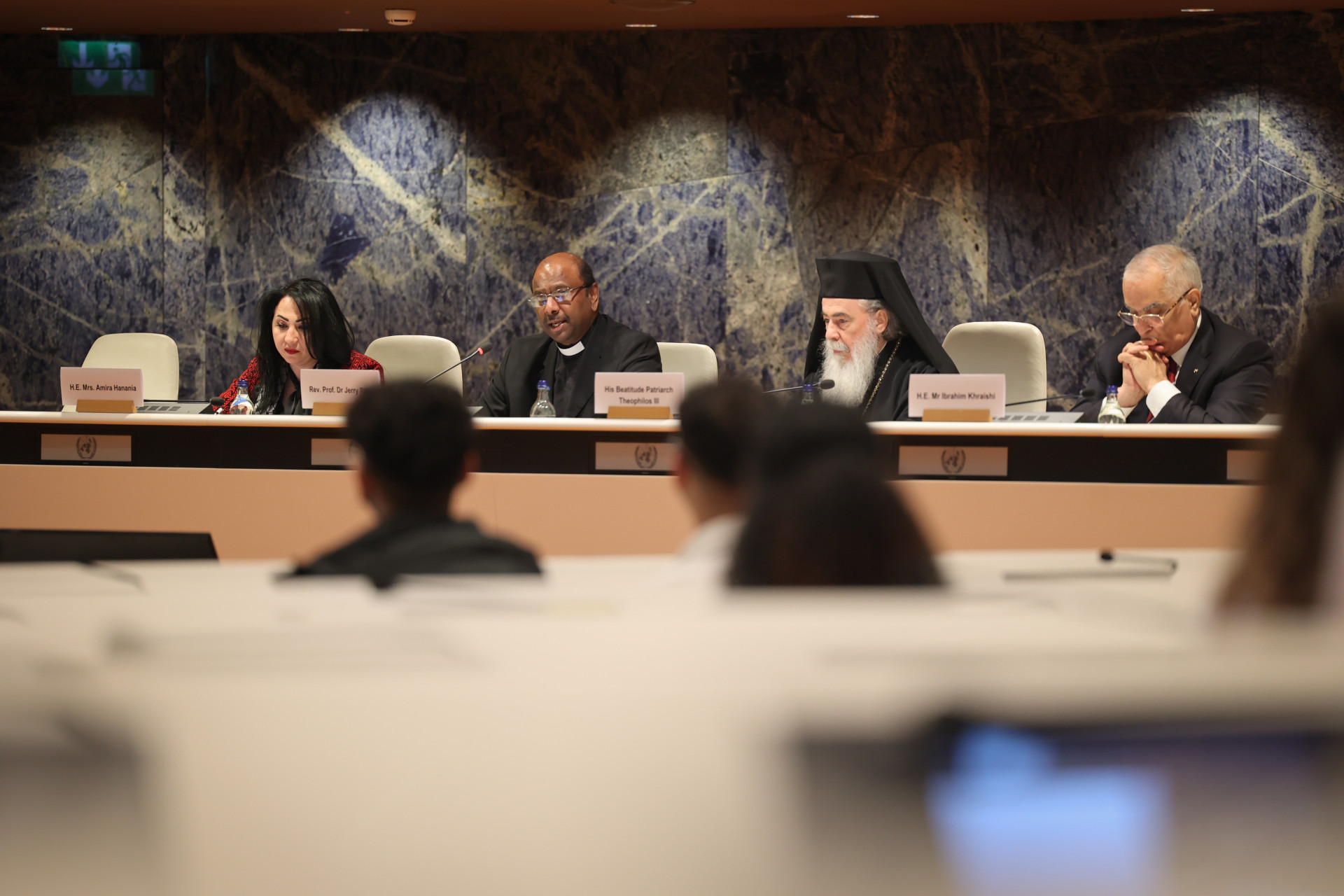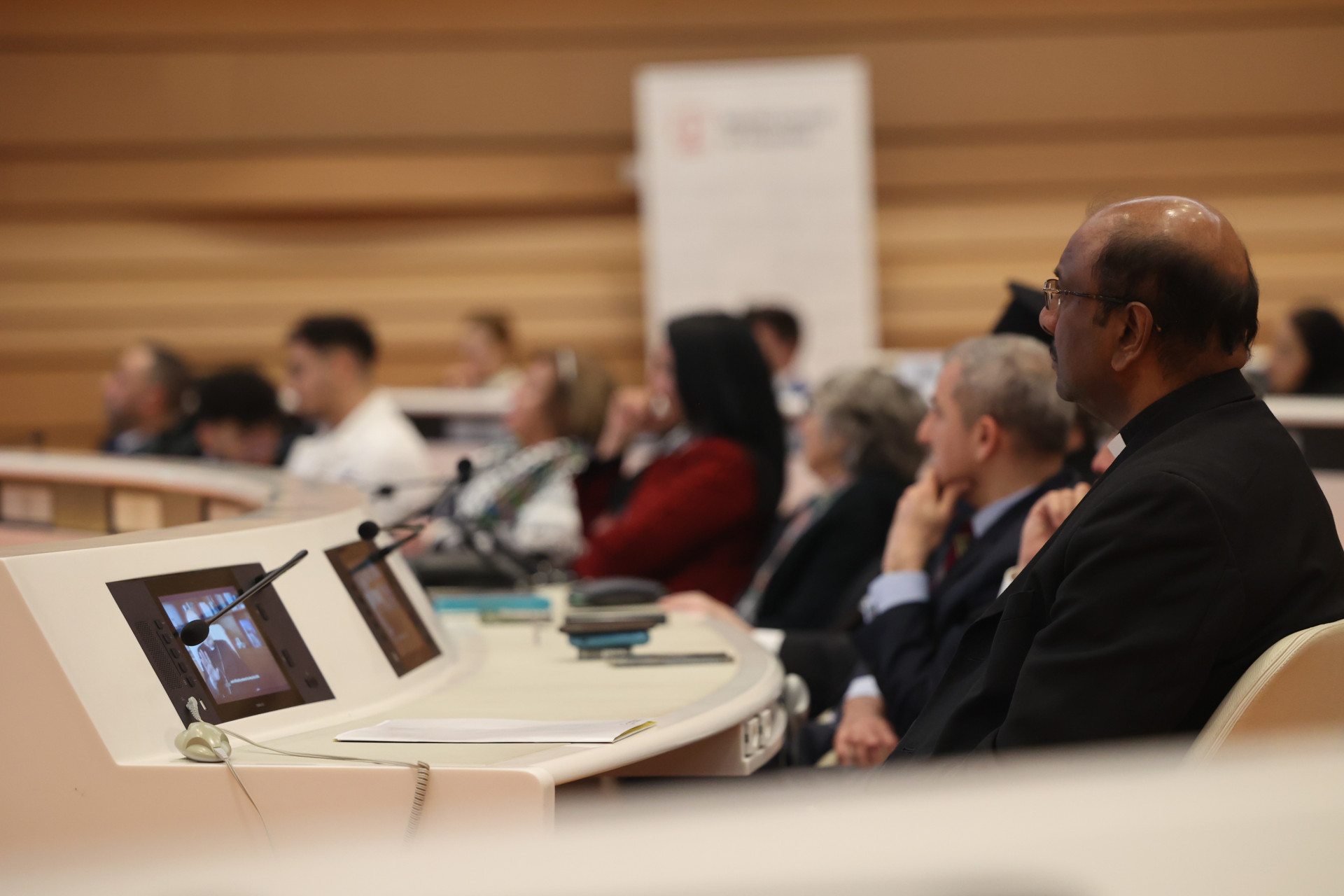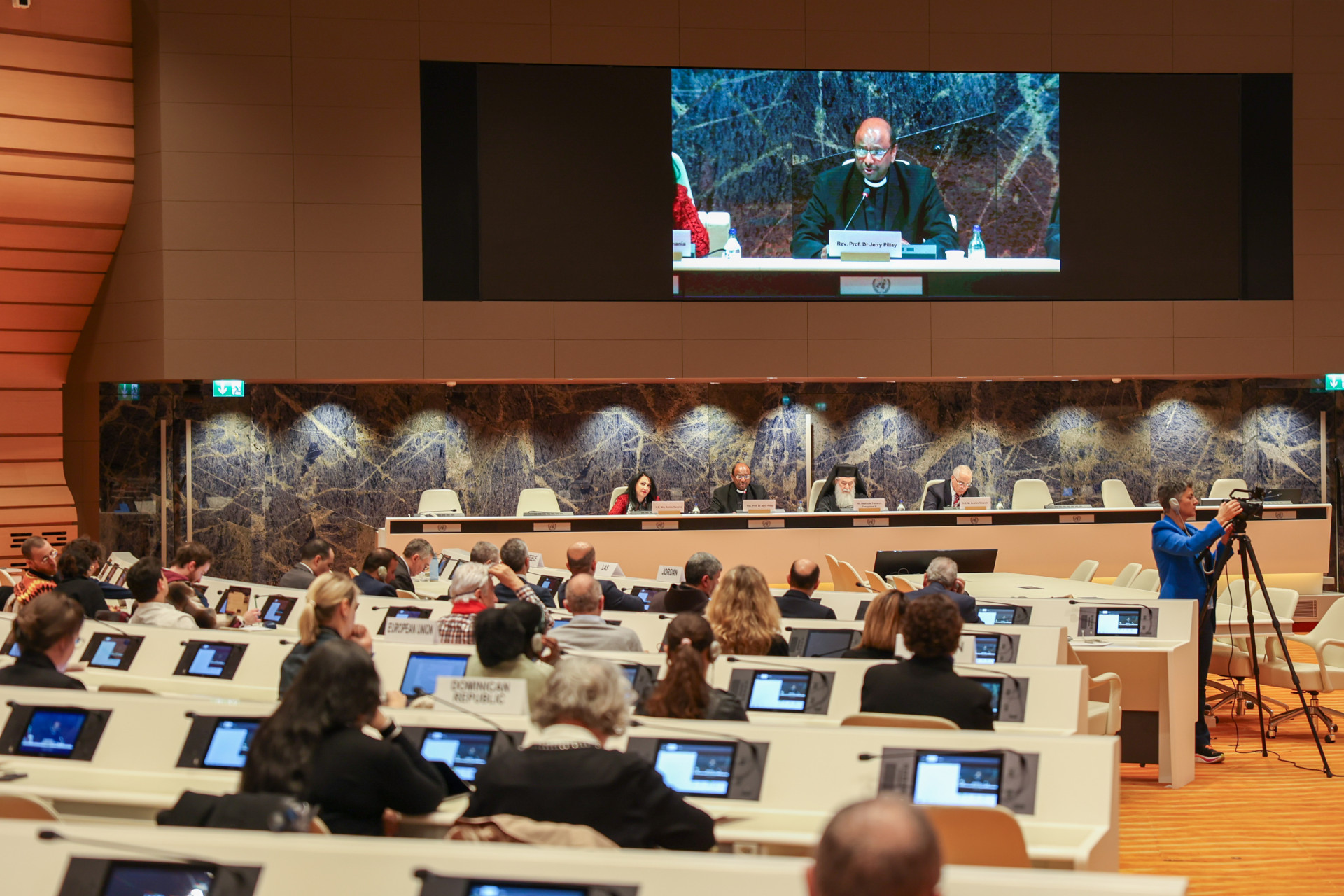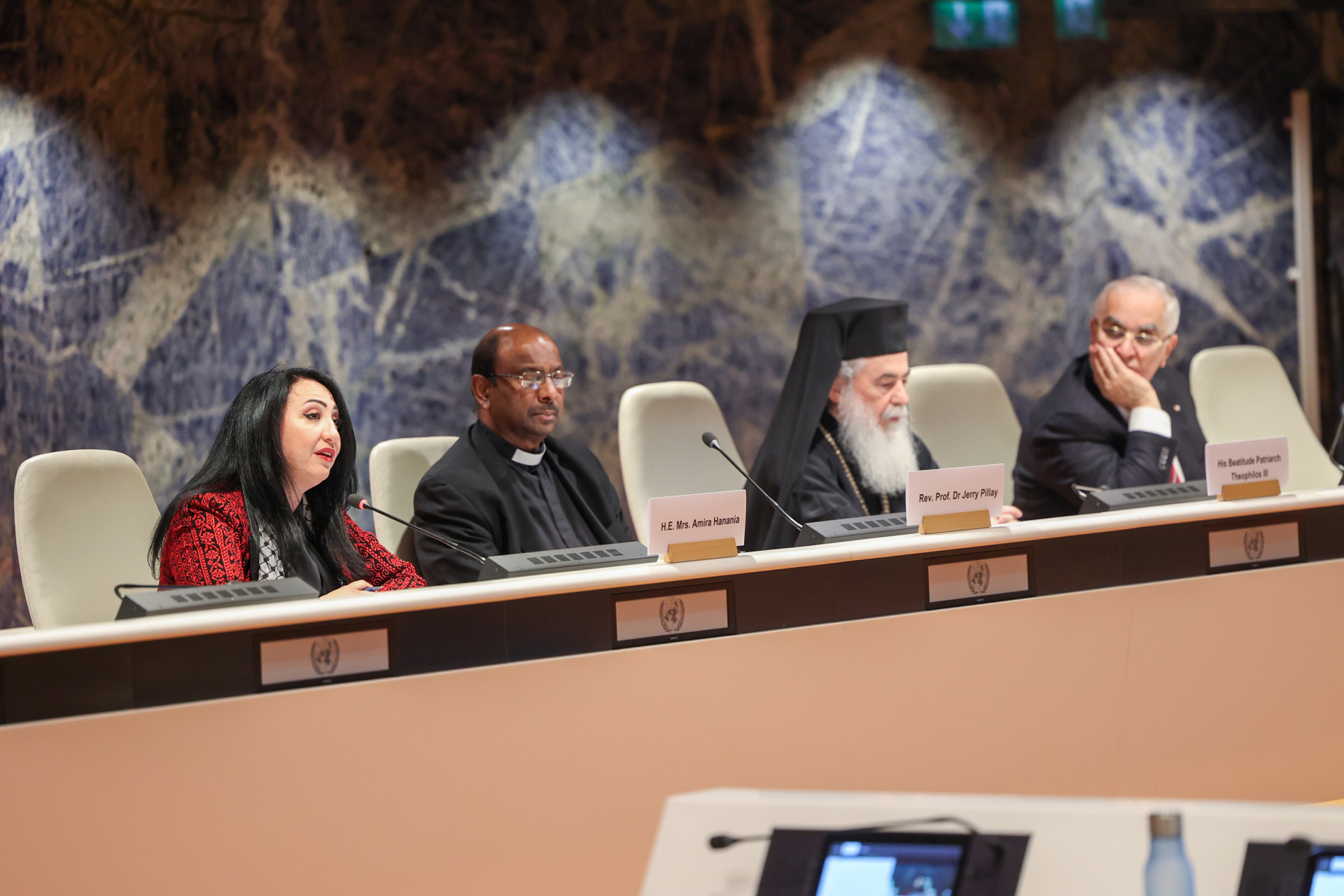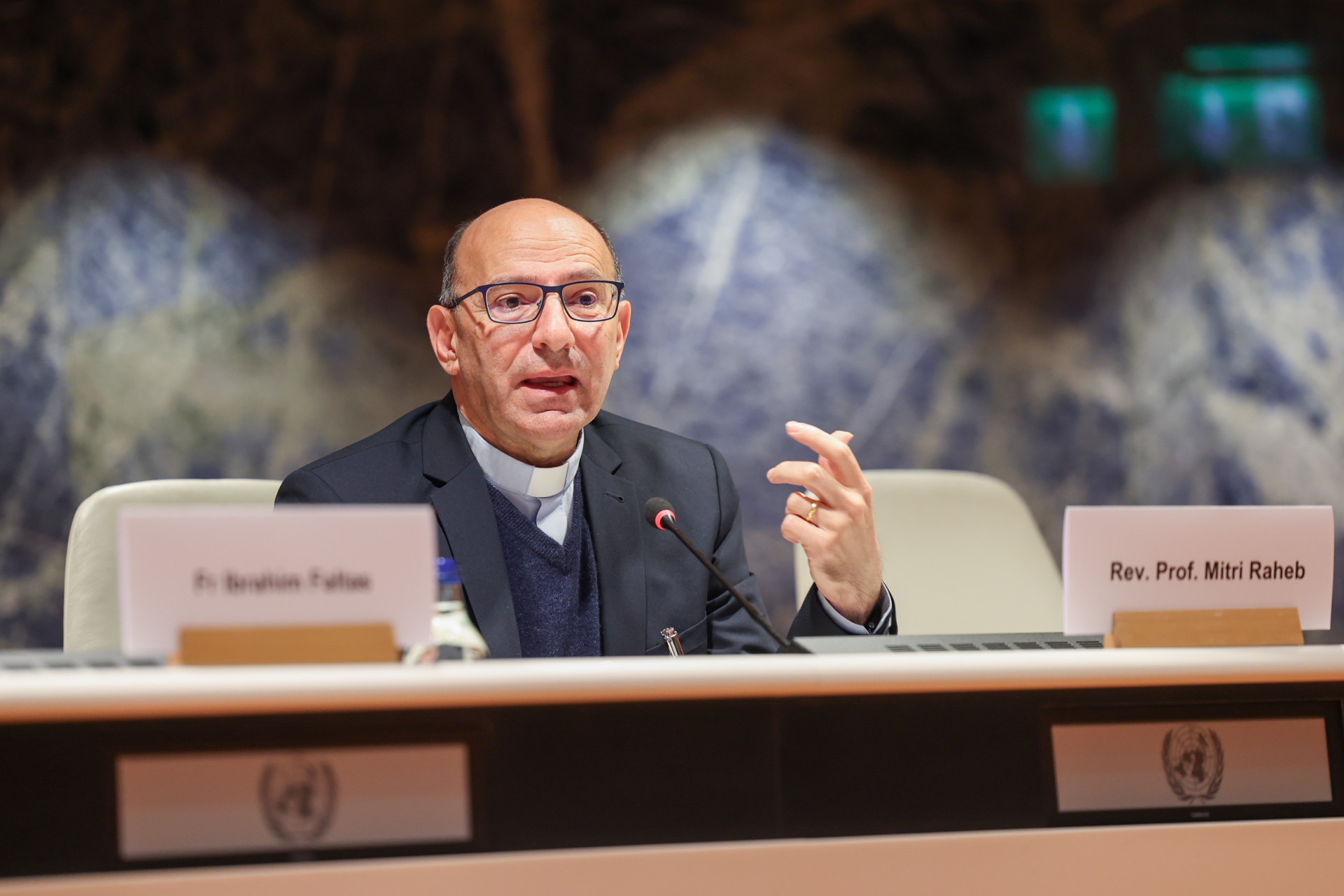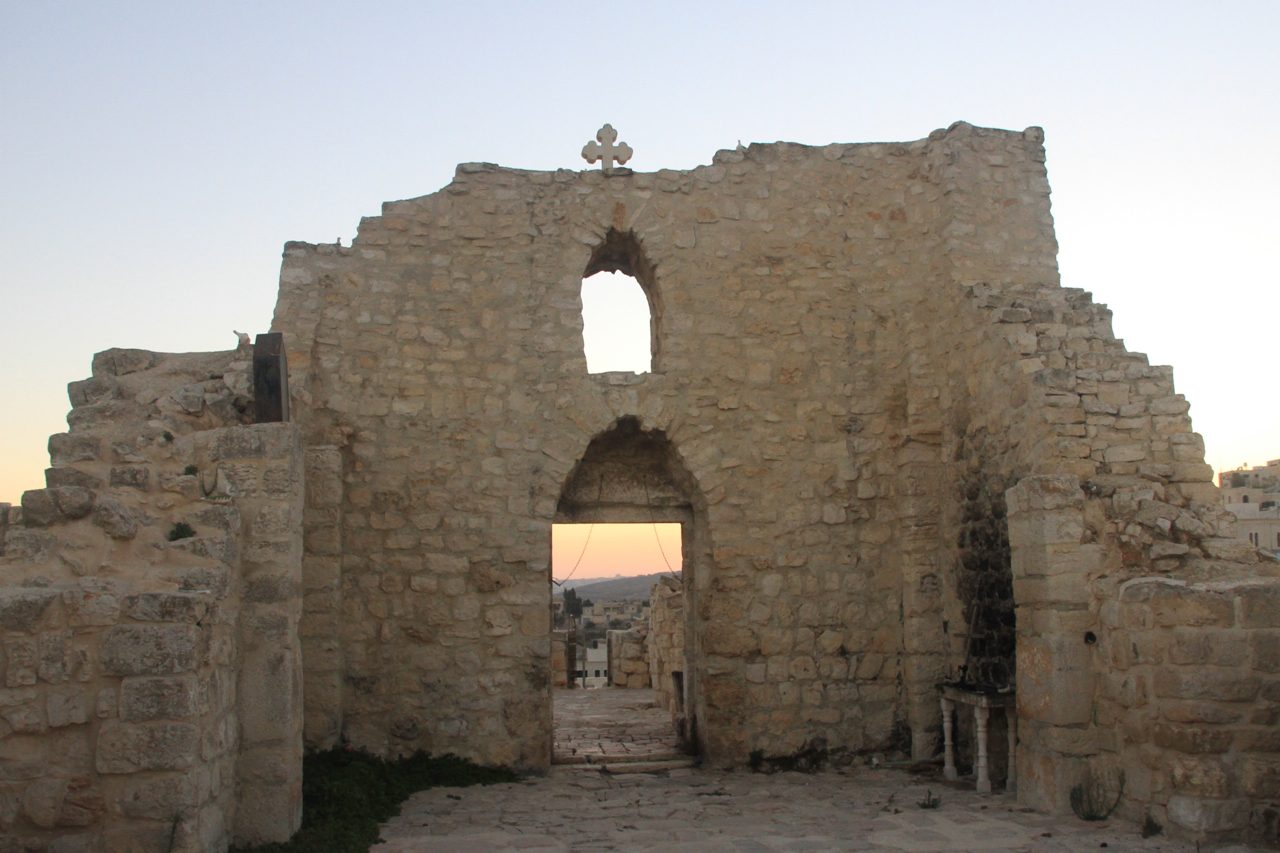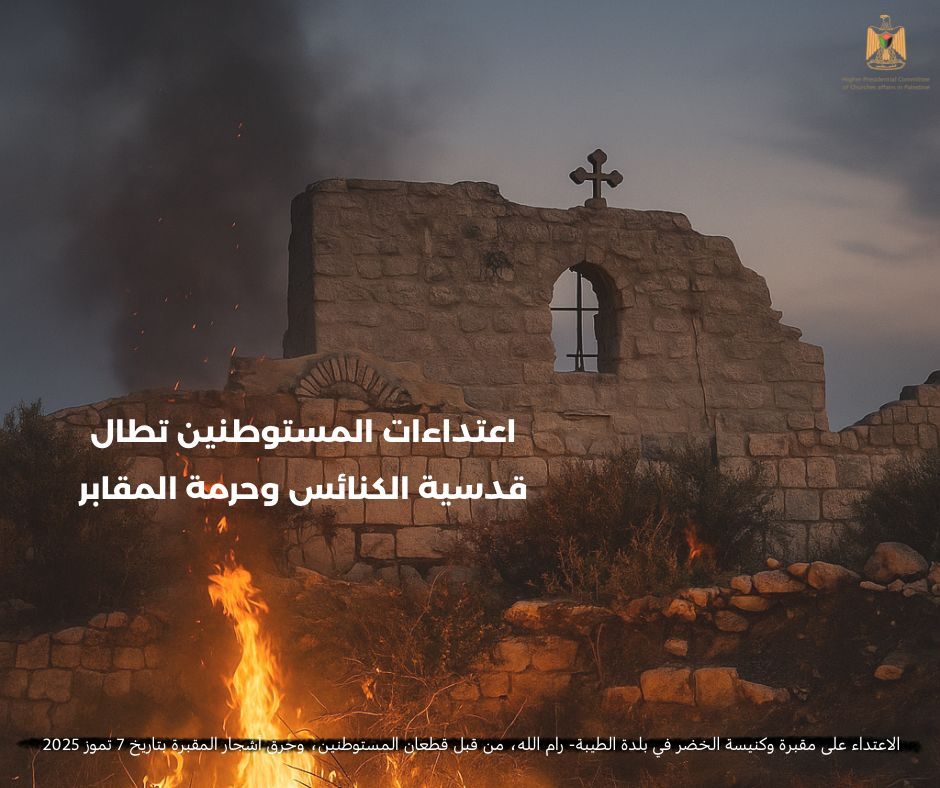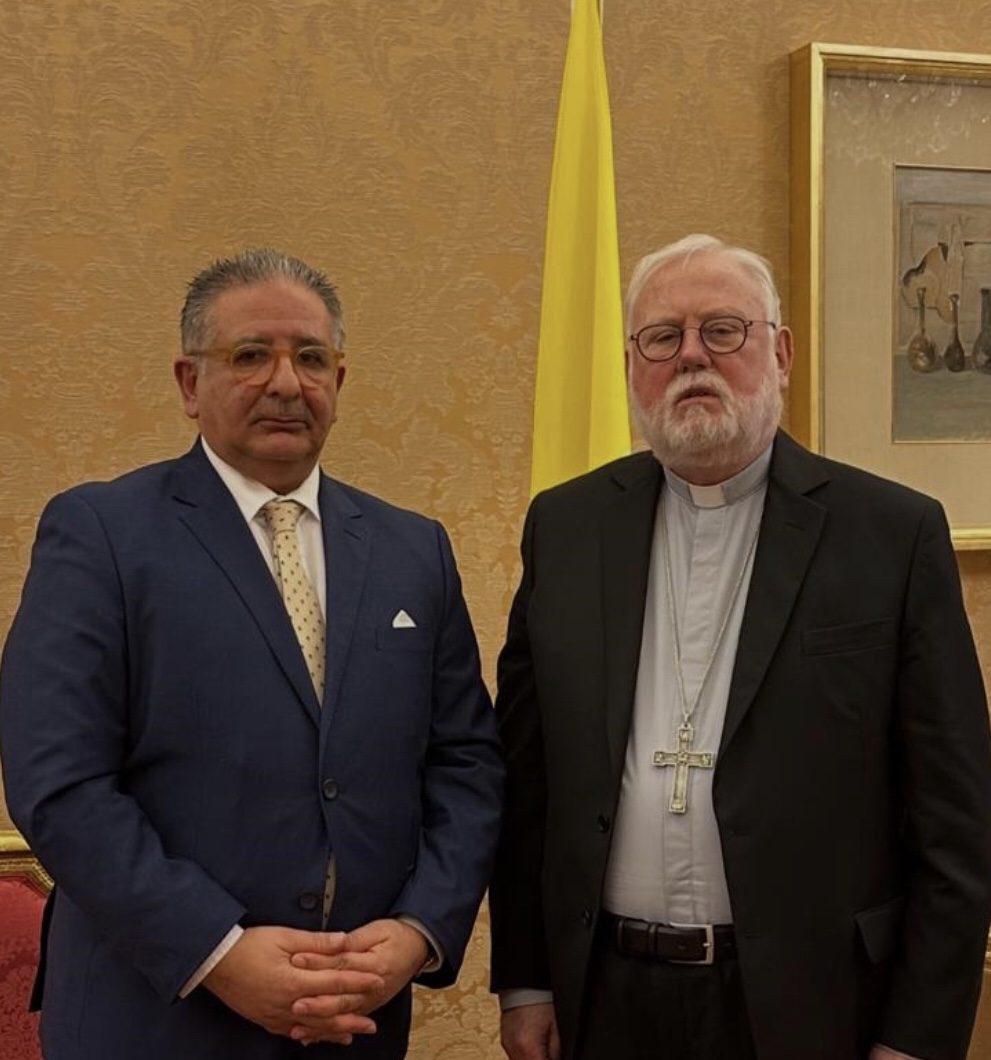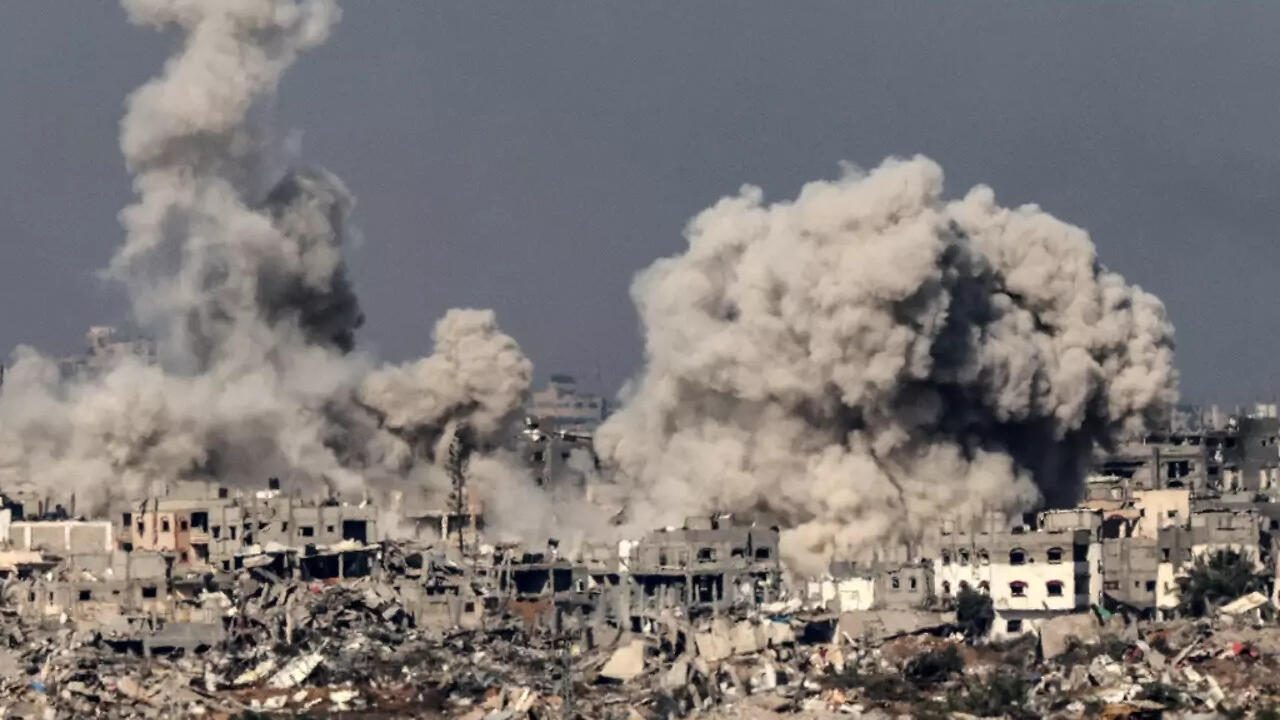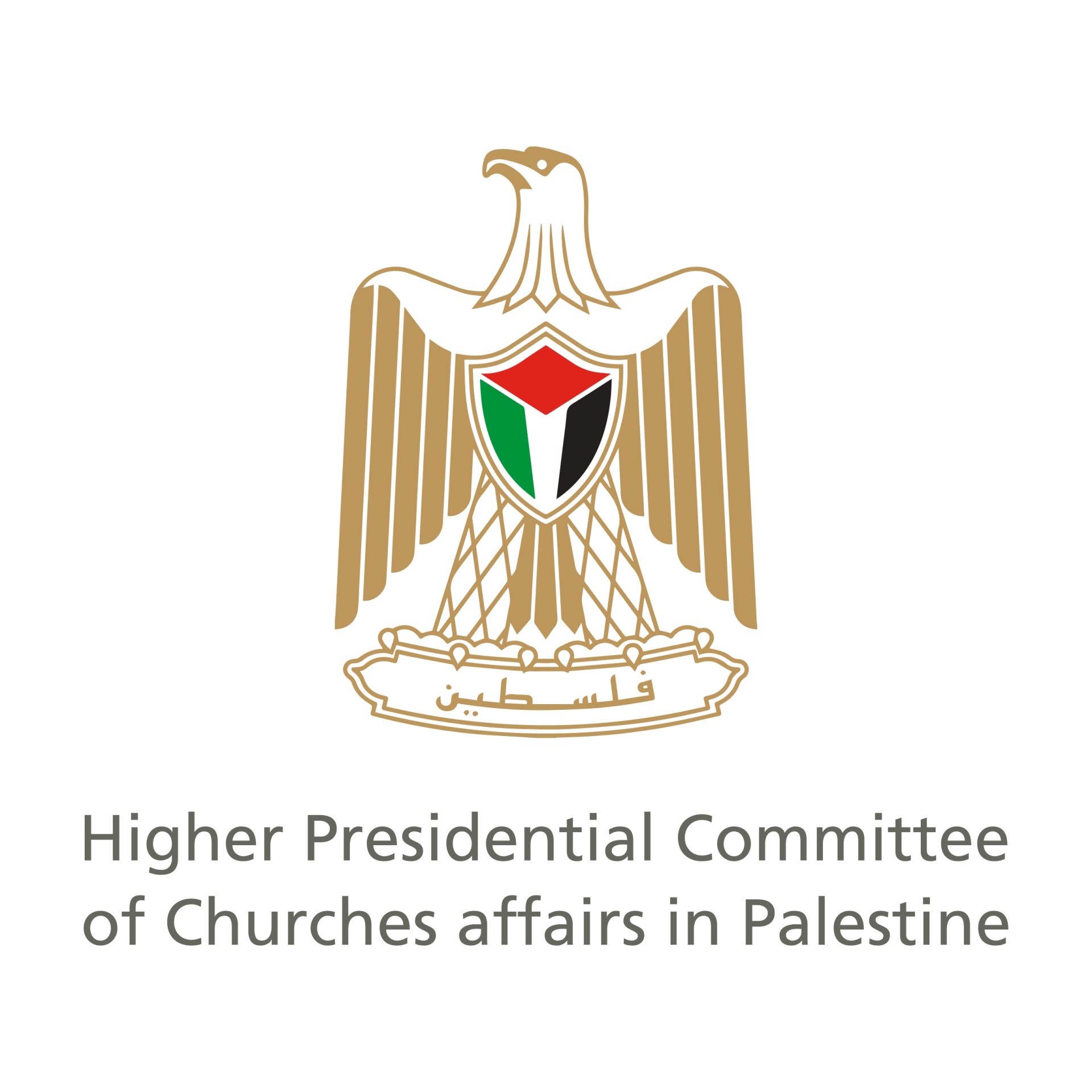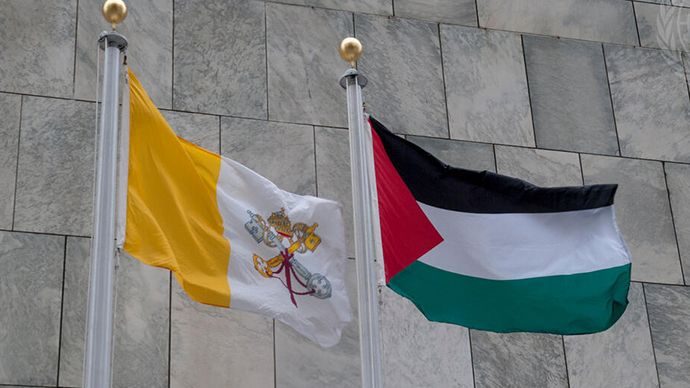Under the auspices of the World Council of Churches and in coordination with the Jerusalem Council of Churches, the documentary Via Dolorosa was screened at the United Nations headquarters in Geneva. The event, held in collaboration with the Palestine Mission to the UN, drew an audience of distinguished religious and diplomatic figures, as well as scholars and intellectuals, reflecting deep appreciation for this significant work.
Directed by Ambassador Amira Hanania, a member of the Higher Presidential Committee for Church Affairs in Palestine and representative to Europe, Via Dolorosa offers a compelling historical account of Christianity in Palestine, from the birth of Jesus Christ through various eras to the present day.
The film serves as a powerful testament to the enduring presence of Palestinian Christians, shedding light on key moments that have shaped their cultural and national identity, as well as the ongoing challenges they face in the face of systematic erasure and marginalization.
The screening was attended by a host of influential figures, including His Beatitude Patriarch Theophilos III, President of the Jerusalem Council of Churches and Patriarch of the Holy City and All Palestine; Rev. Prof. Dr. Jerry Pillay, Secretary-General of the World Council of Churches; Dr. Ramzi Khouri, member of the PLO Executive Committee and Head of the Higher Presidential Committee for Church Affairs in Palestine; Ambassador Ibrahim Khraishi, Permanent Observer of the State of Palestine to the UN Office Office and International Organizations in Geneva; Father Ibrahim Faltas, Vicar of the Custody of the Holy Land; Rev. Dr. Mitri Raheb, President and Founder of Dar al-Kalima University in Bethlehem; and Dr. Wasfi Kilani, Director of Jerusalem Affairs at the Royal Hashemite Court of Jordan.
Speaking on behalf of the Higher Presidential Committee for Church Affairs, Dr. Ramzi Khouri expressed deep pride in this landmark documentary, emphasizing that Via Dolorosa is a crucial contribution to documenting the Palestinian Christian presence and its historic and national role in Palestine. He commended the tireless efforts of Ambassador Amira Hanania, whose dedication over the years has brought this film to life with meticulous accuracy and authenticity, ensuring it stands as a testament to the rich spiritual and cultural heritage of Palestinian Christians.
Khouri also praised Patriarch Theophilos III for his steadfast opposition to Israeli violations against churches and their properties. He condemned the targeted killings and displacement affecting Palestinians in Gaza and the West Bank, including Jerusalem. Additionally, he expressed gratitude to the World Council of Churches for its unwavering support of the Palestinian cause and extended appreciation to Ambassador Khraishi for his instrumental role in organizing the event.
In his remarks, Patriarch Theophilos III highlighted the mounting pressures on churches in Jerusalem, noting that Israeli policies aims at diminishing the Christian presence in the Holy City and have led to declining pilgrimages and increasing restrictions on Palestinian Christian communities.
Reverend Dr. Mitri Raheb emphasized that Jesus Christ came to Palestine more than two thousand years ago to bring peace to the world, and today, it is our collective responsibility to bring peace to Palestine, the land of Christ. He warned against the erasure of Christian heritage in Gaza, a historically significant center of Christianity, and strongly criticized Christian Zionism for distorting biblical narratives for political purposes. The time has come, he declared, to restore peace to the land where the Messenger of Peace was born.
Rev. Prof. Dr. Jerry Pillay reaffirmed the World Council of Churches’ commitment to justice, peace, and equal rights in the Holy Land. He called for an immediate end to Israeli aggression in Gaza and the urgent delivery of humanitarian aid to civilians, underscoring that true peace can only be achieved through mutual recognition of all peoples’ dignity and humanity.
Ambassador Ibrahim Khraishi emphasized that Palestine, as the birthplace of the monotheistic religions, carries a profound message of peace based on its historical, legal, and national rights. He stressed that the Palestinian people will never accept forced displacement or ethnic cleansing from their homeland.
In closing, Ambassador Amira Hanania underscored the importance of Palestinians having the opportunity to tell their own story, noting that Via Dolorosa gives them a powerful voice in sharing their story. She described the film as a living testament to the role Palestinian Christians have played in the pursuit of justice, rejecting all attempts to erase their identity from national and international discourse.
“We stand here today,” she concluded, “to affirm that this land is not just a relic of the past, it is a living identity that will not be silenced or erased.”

